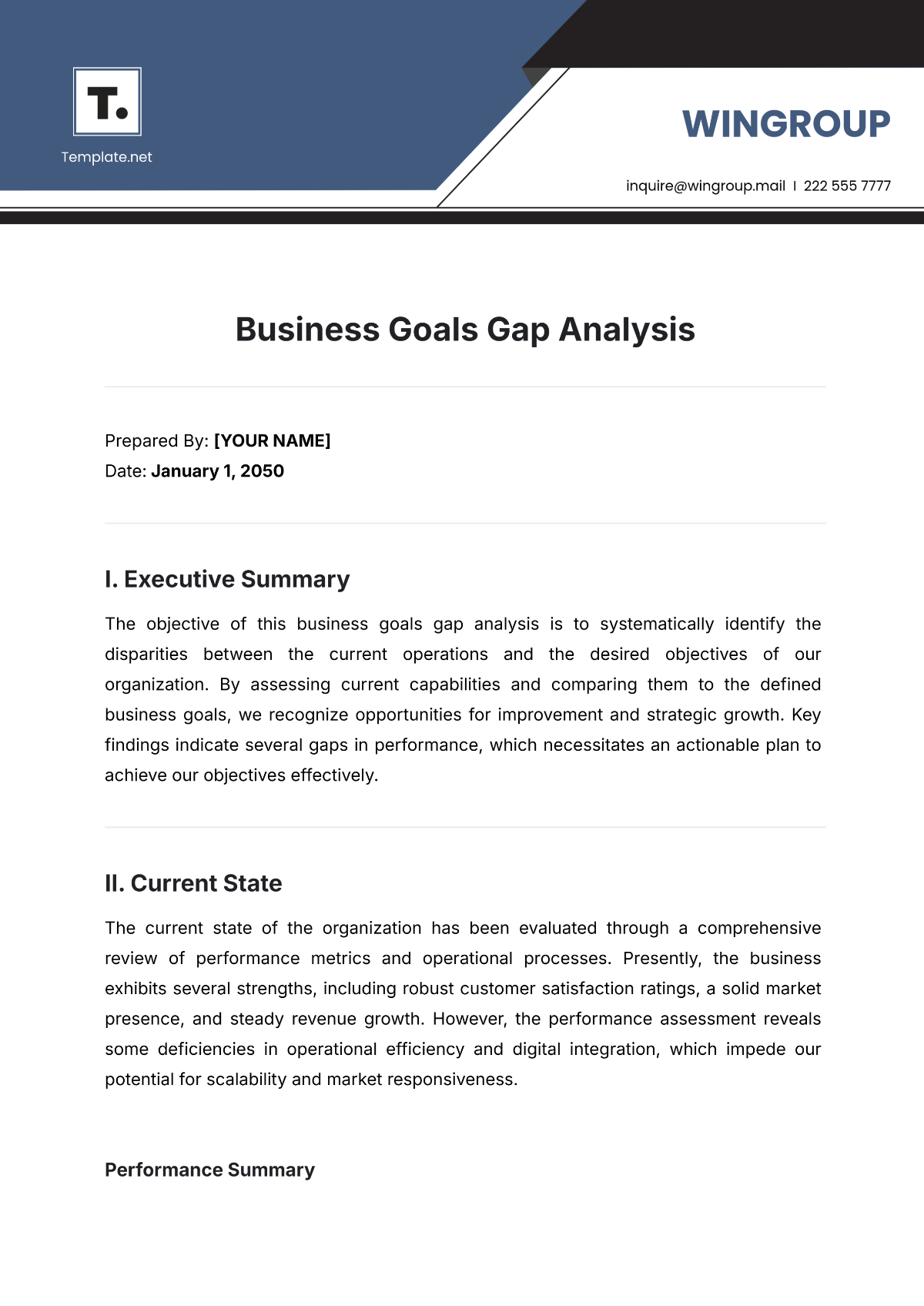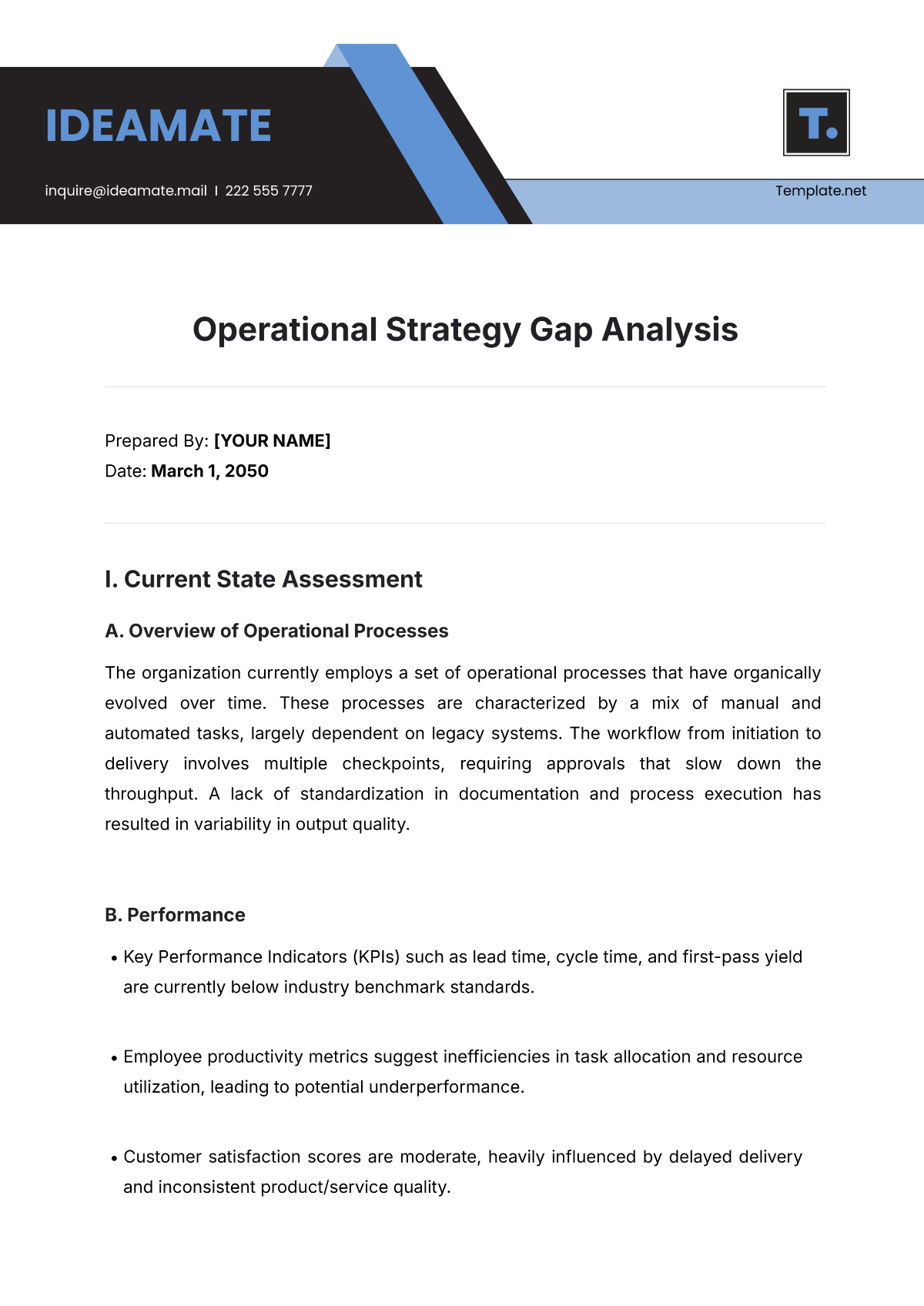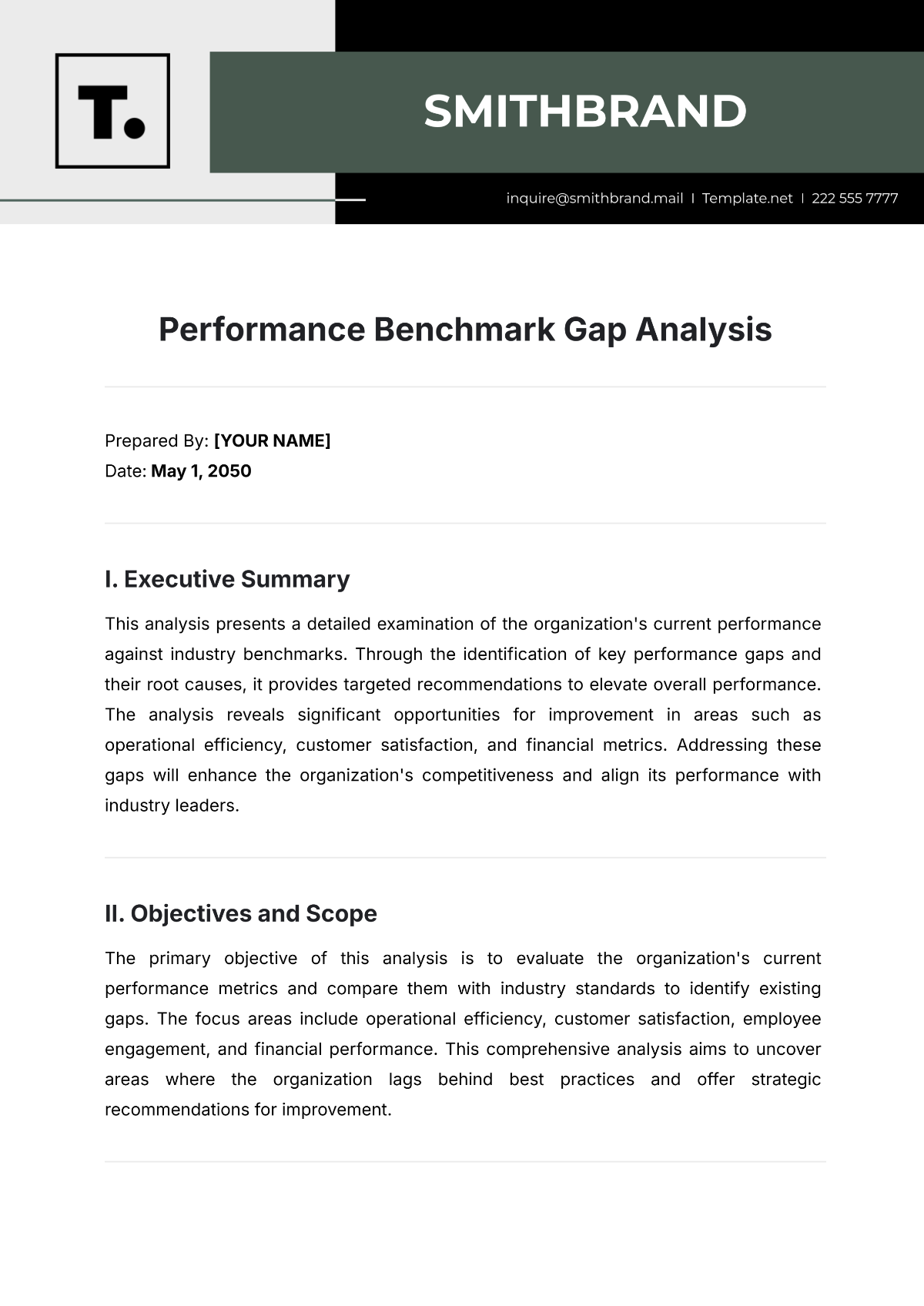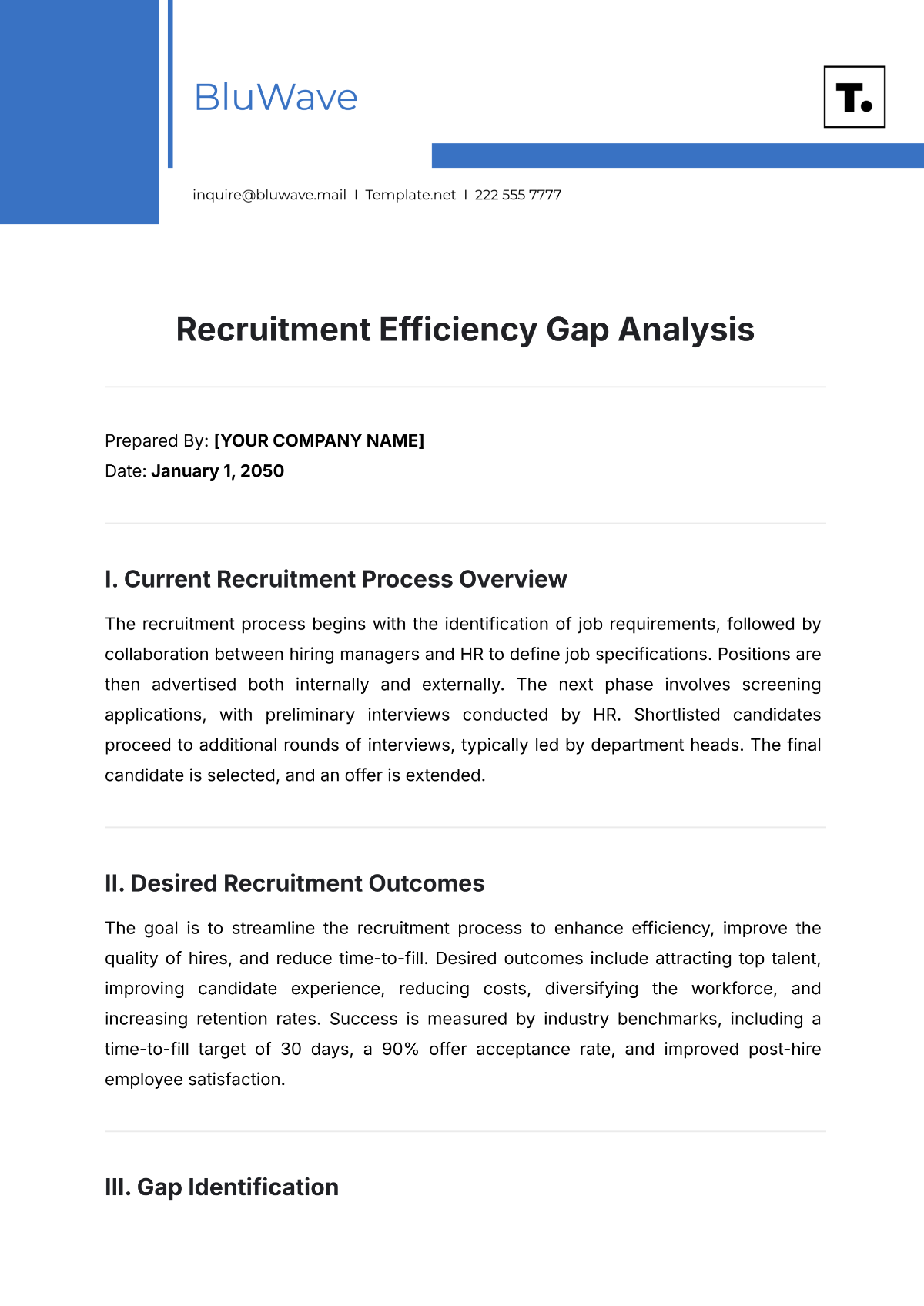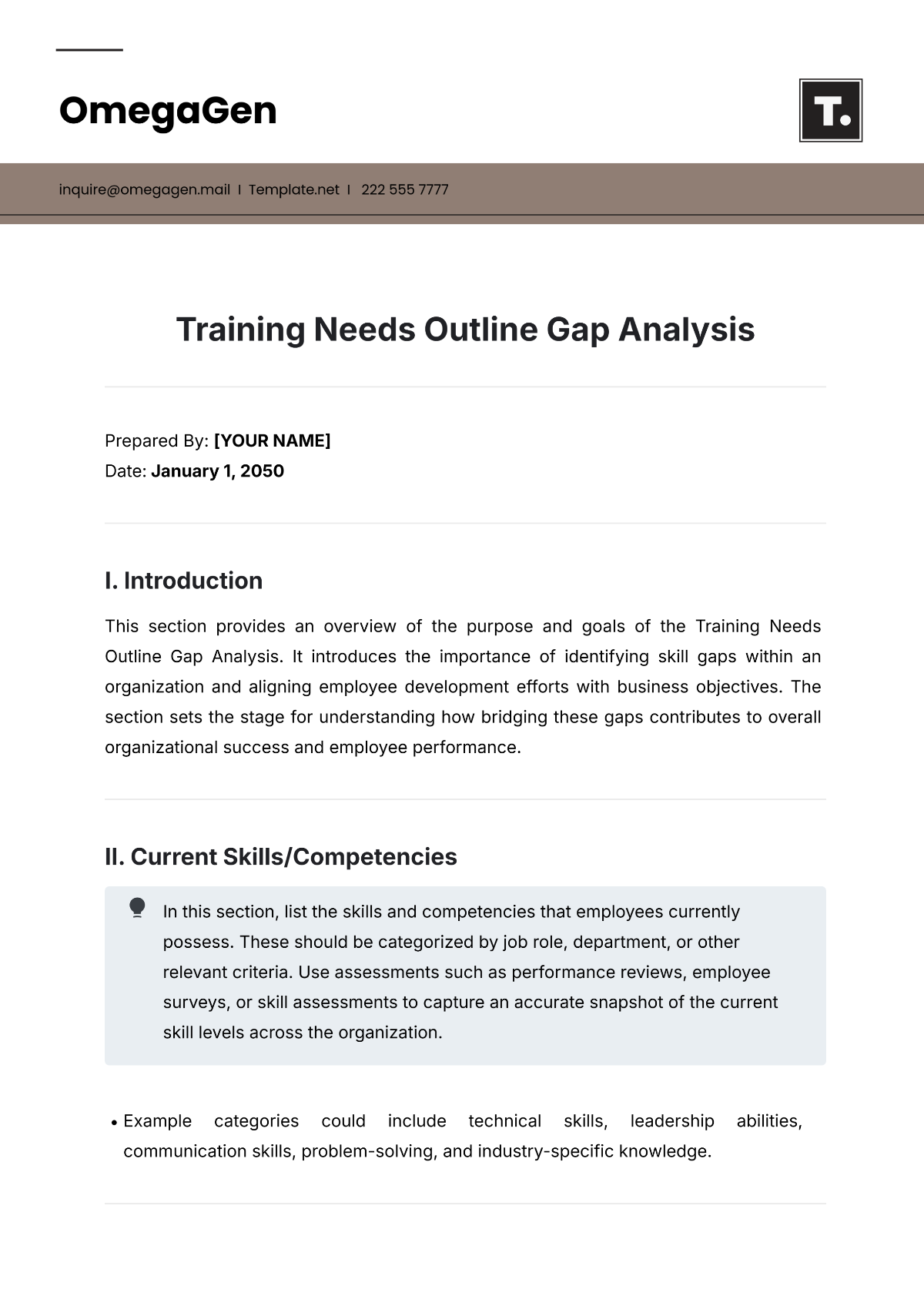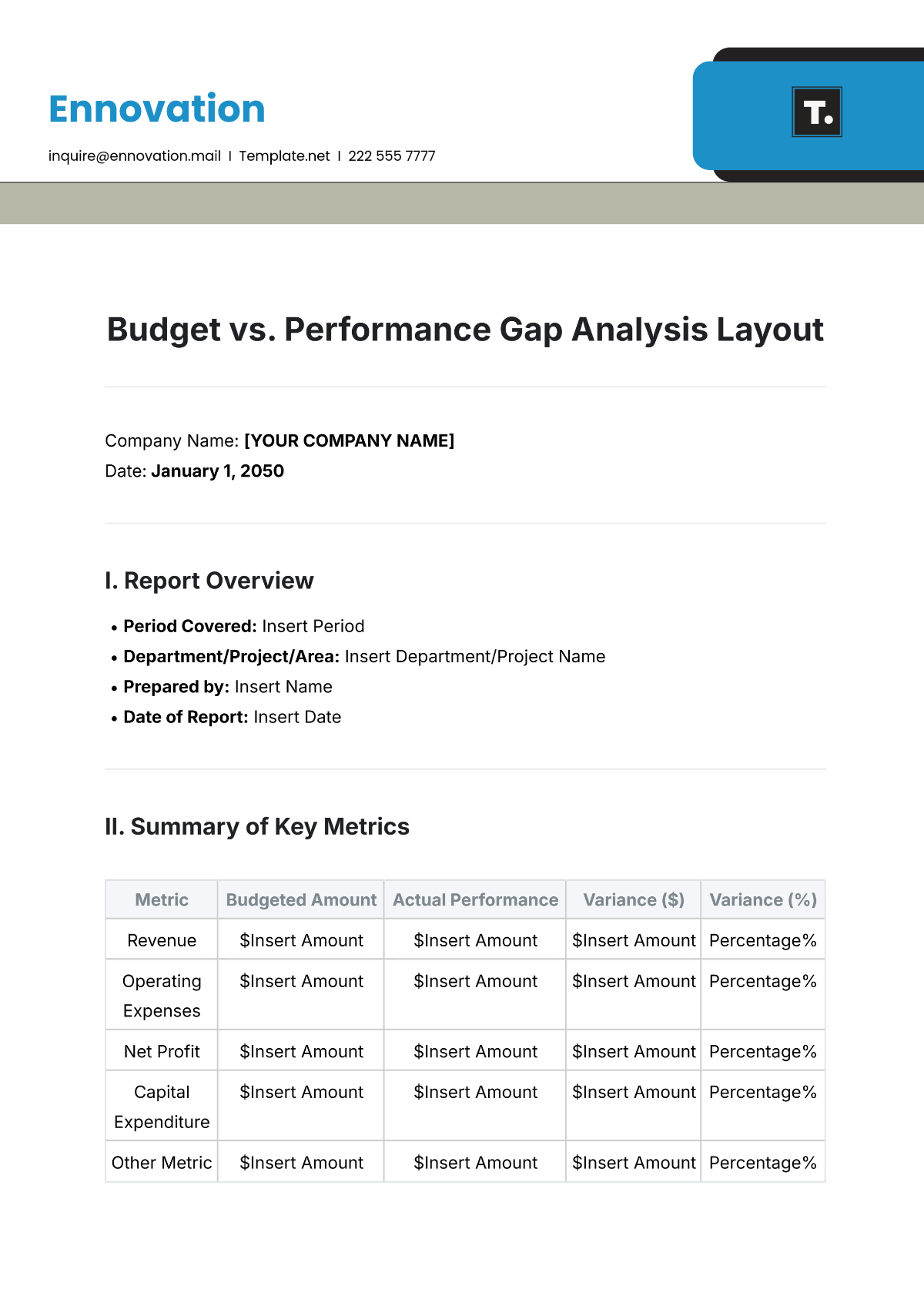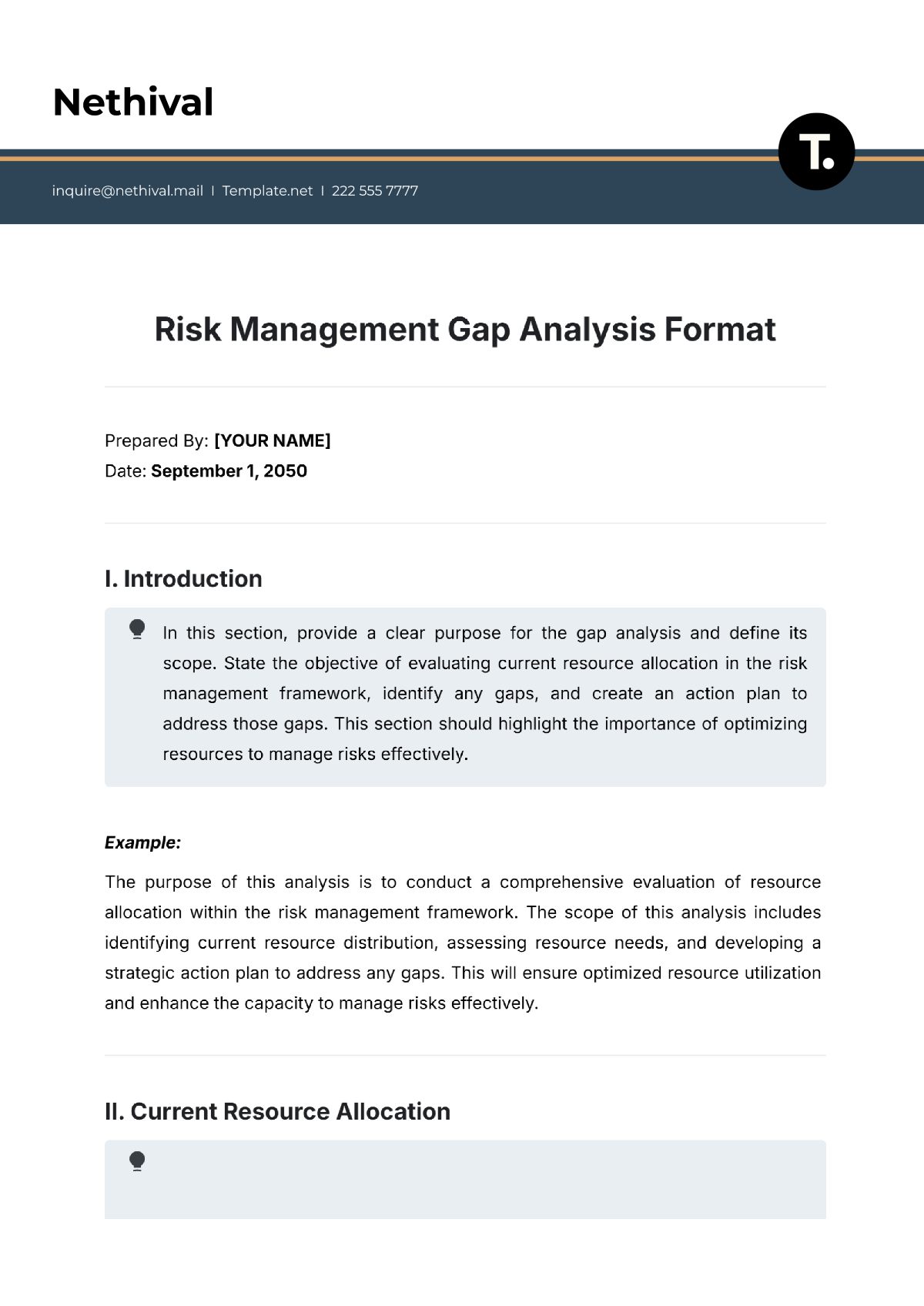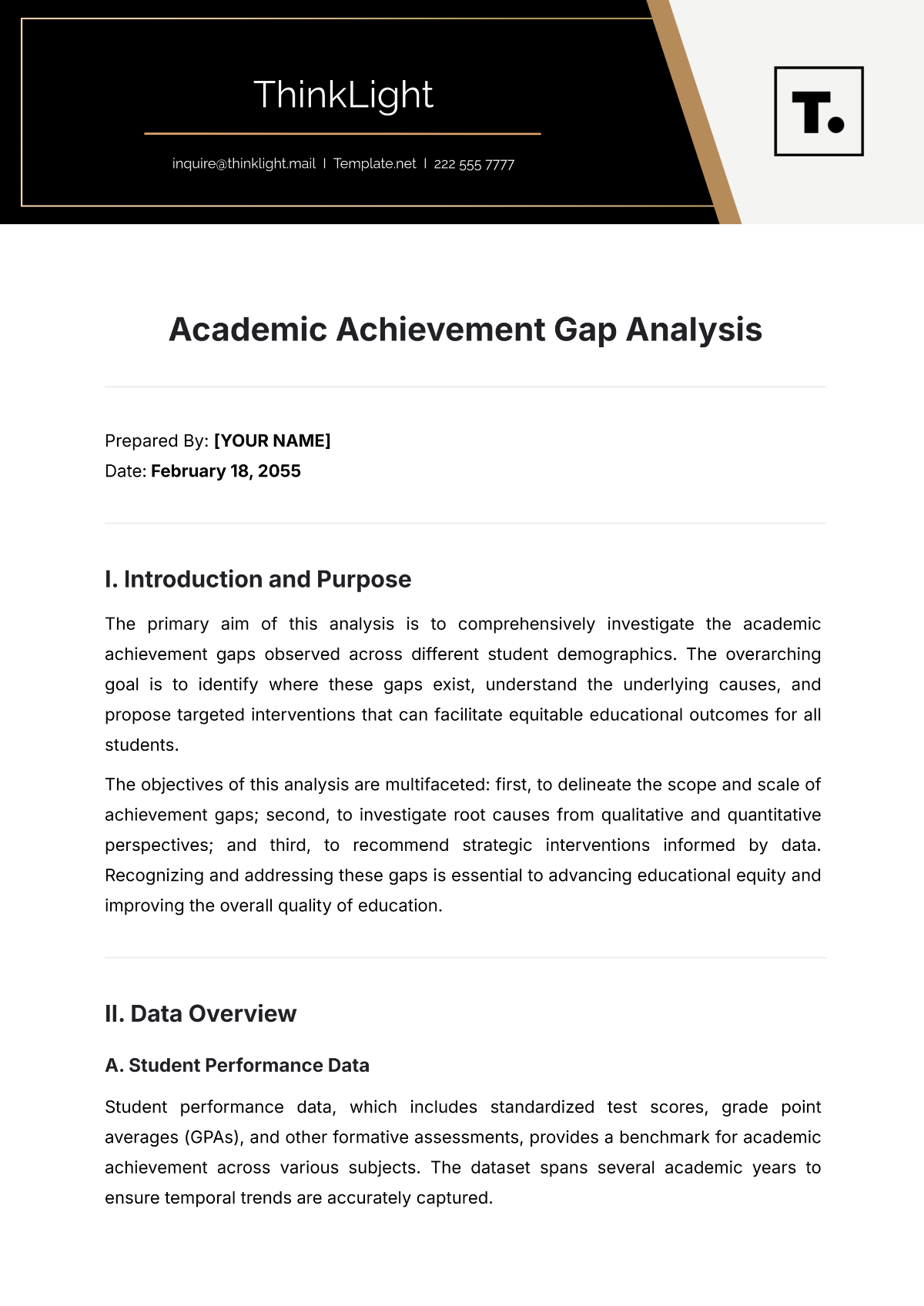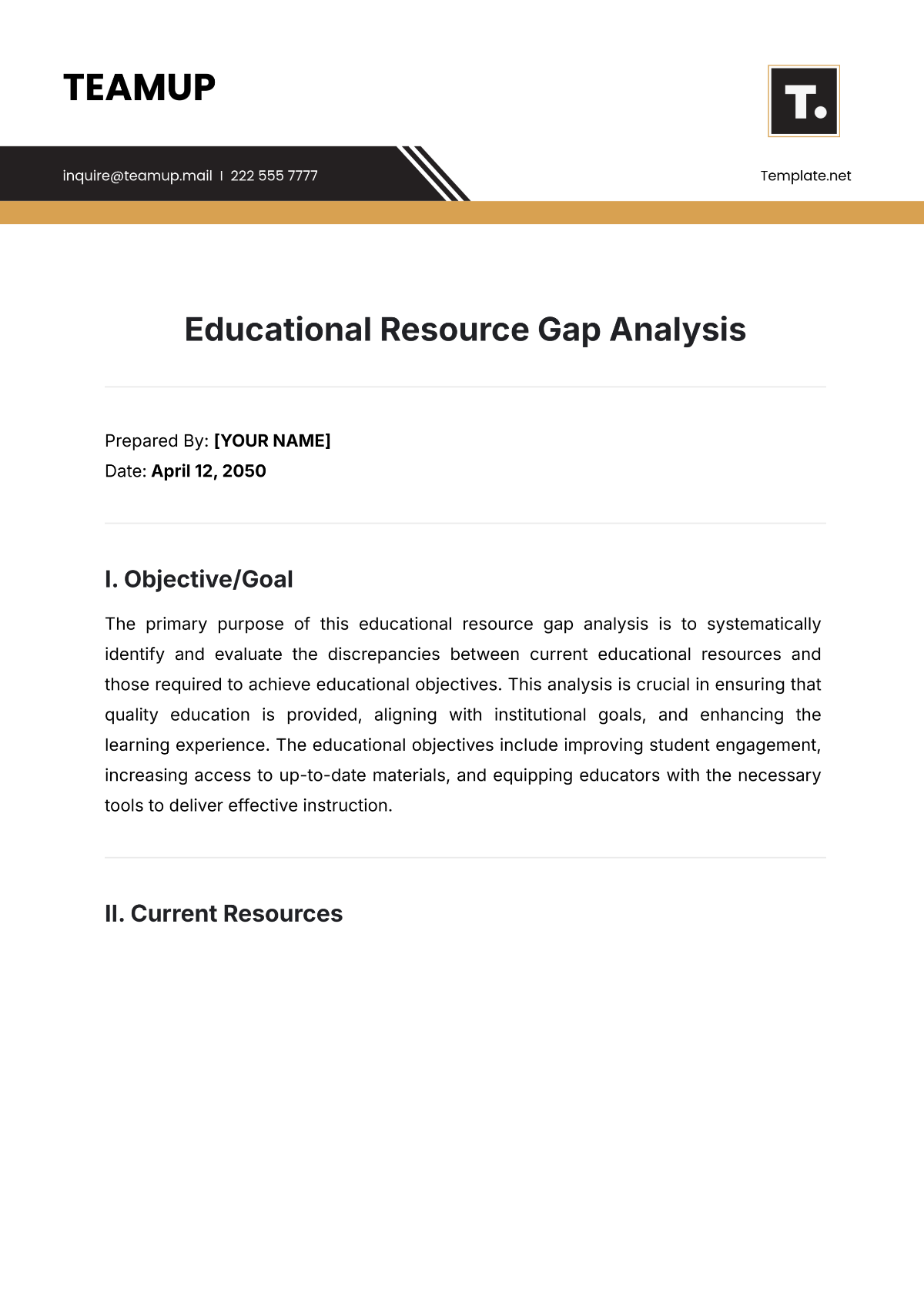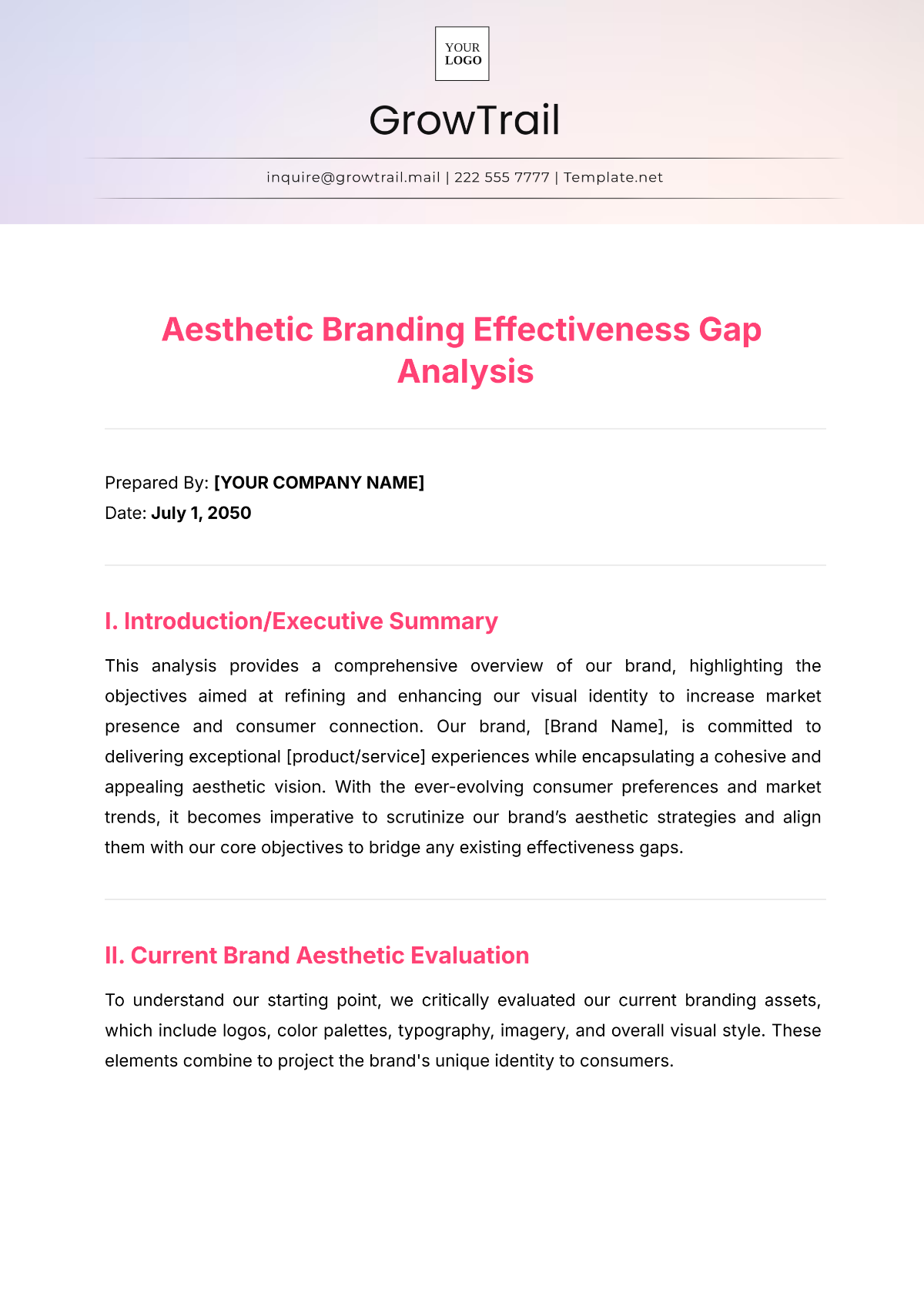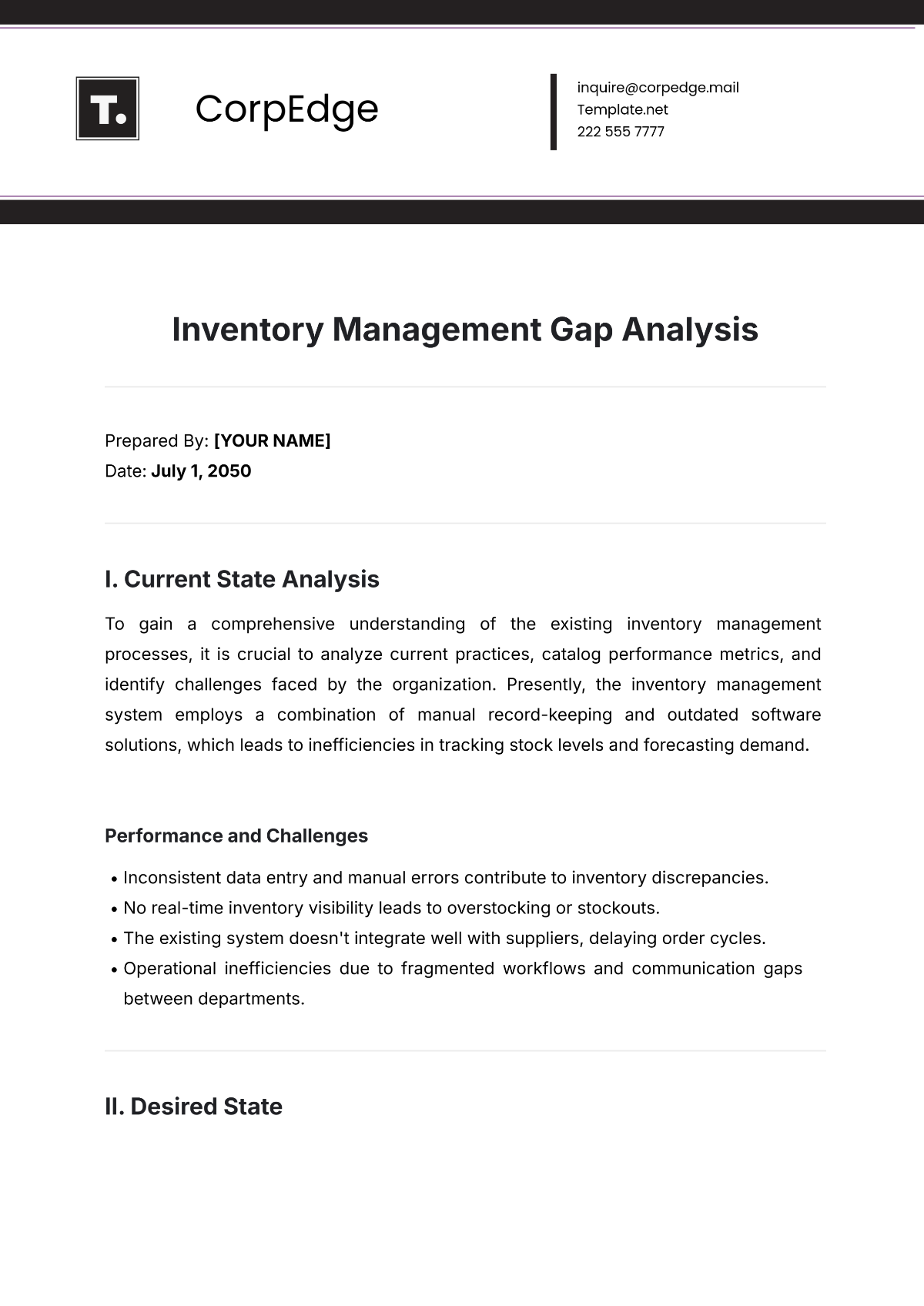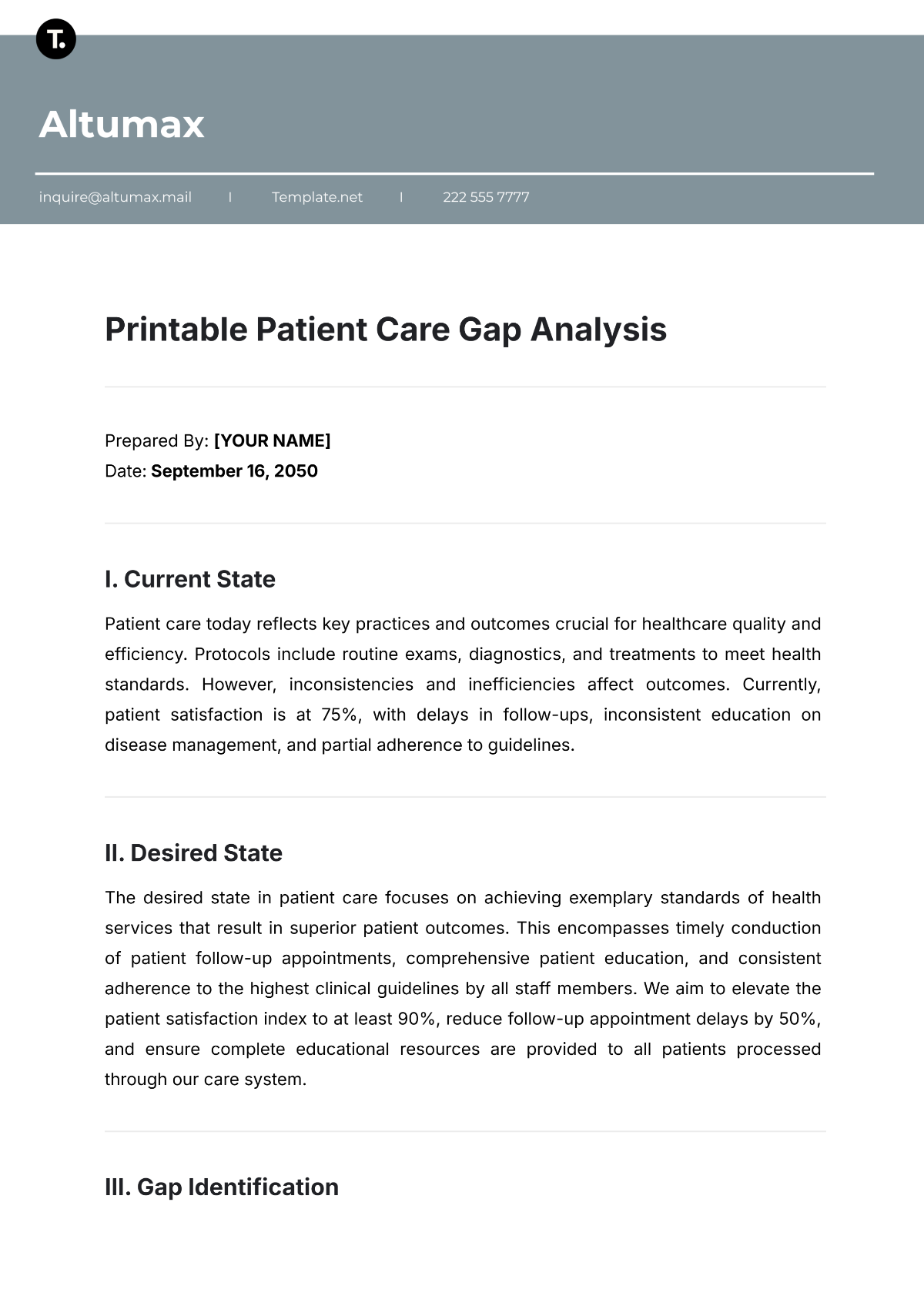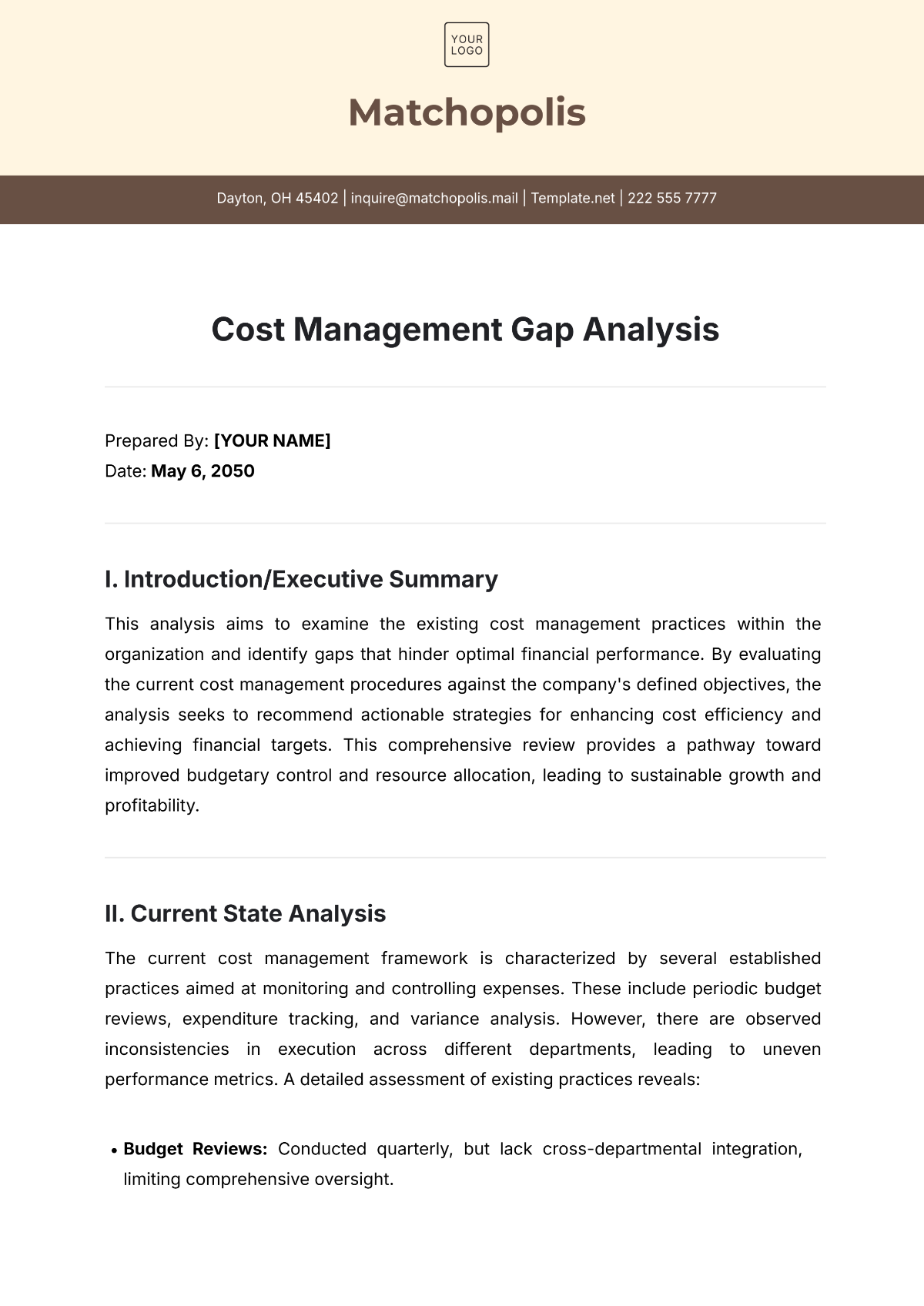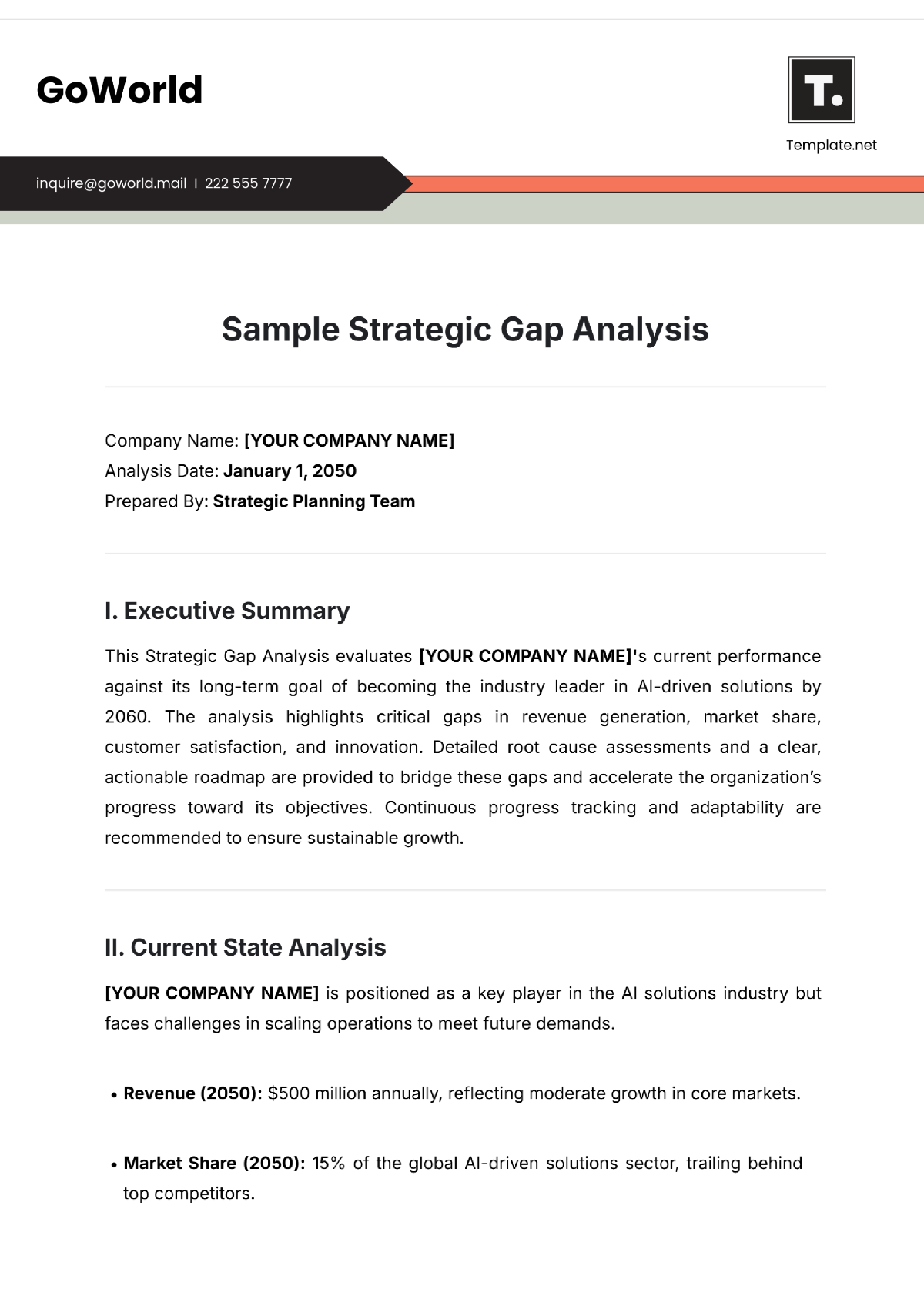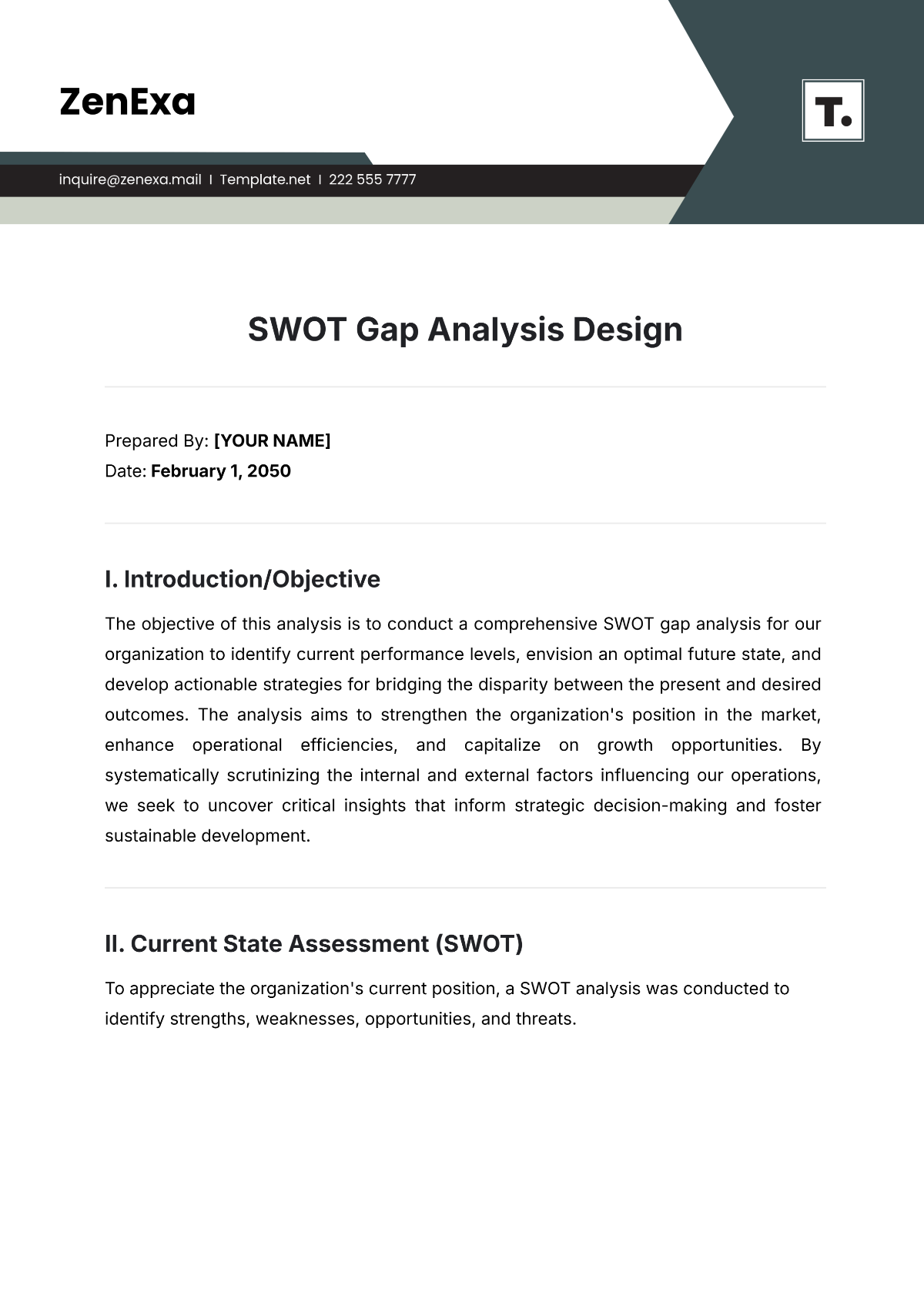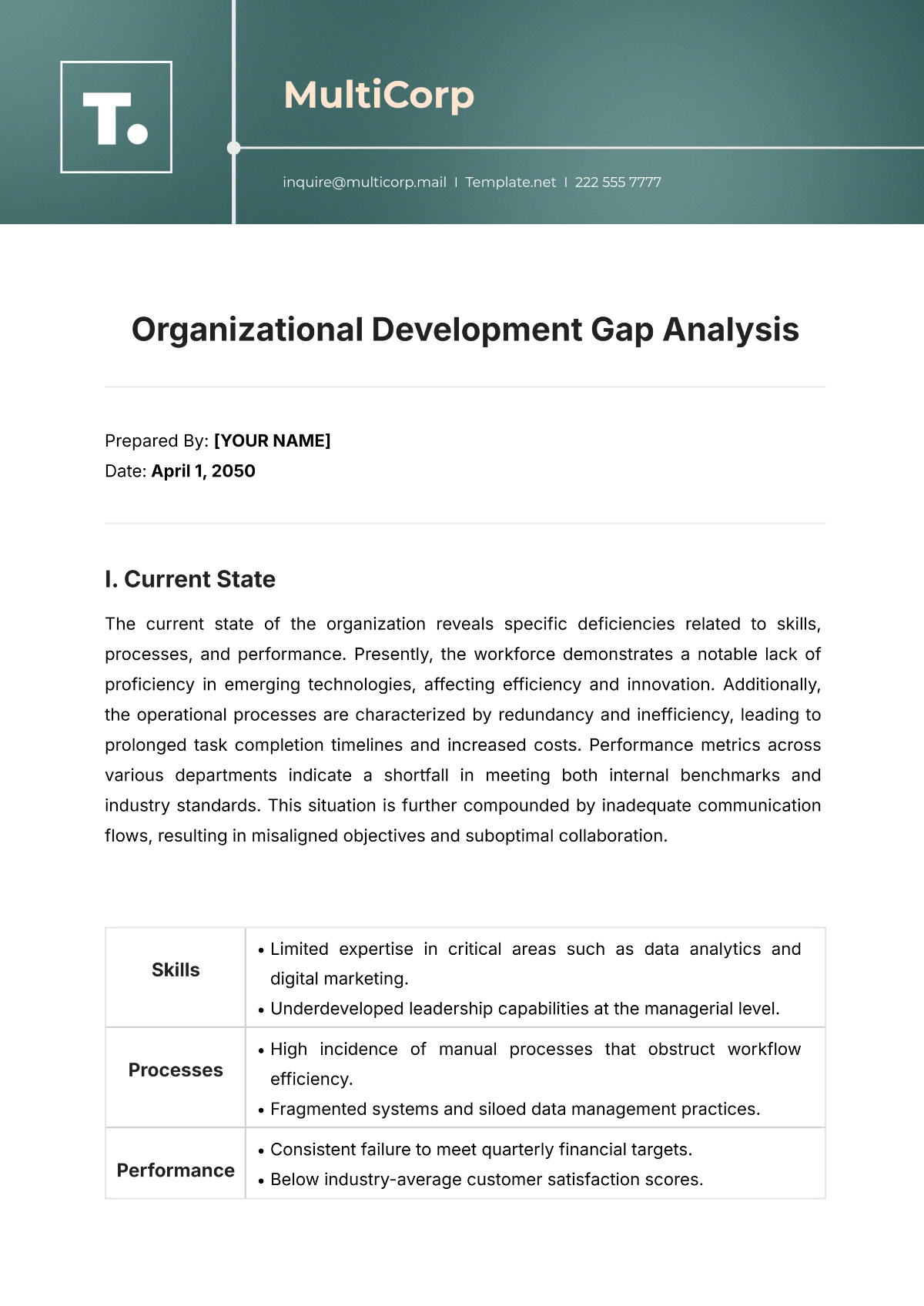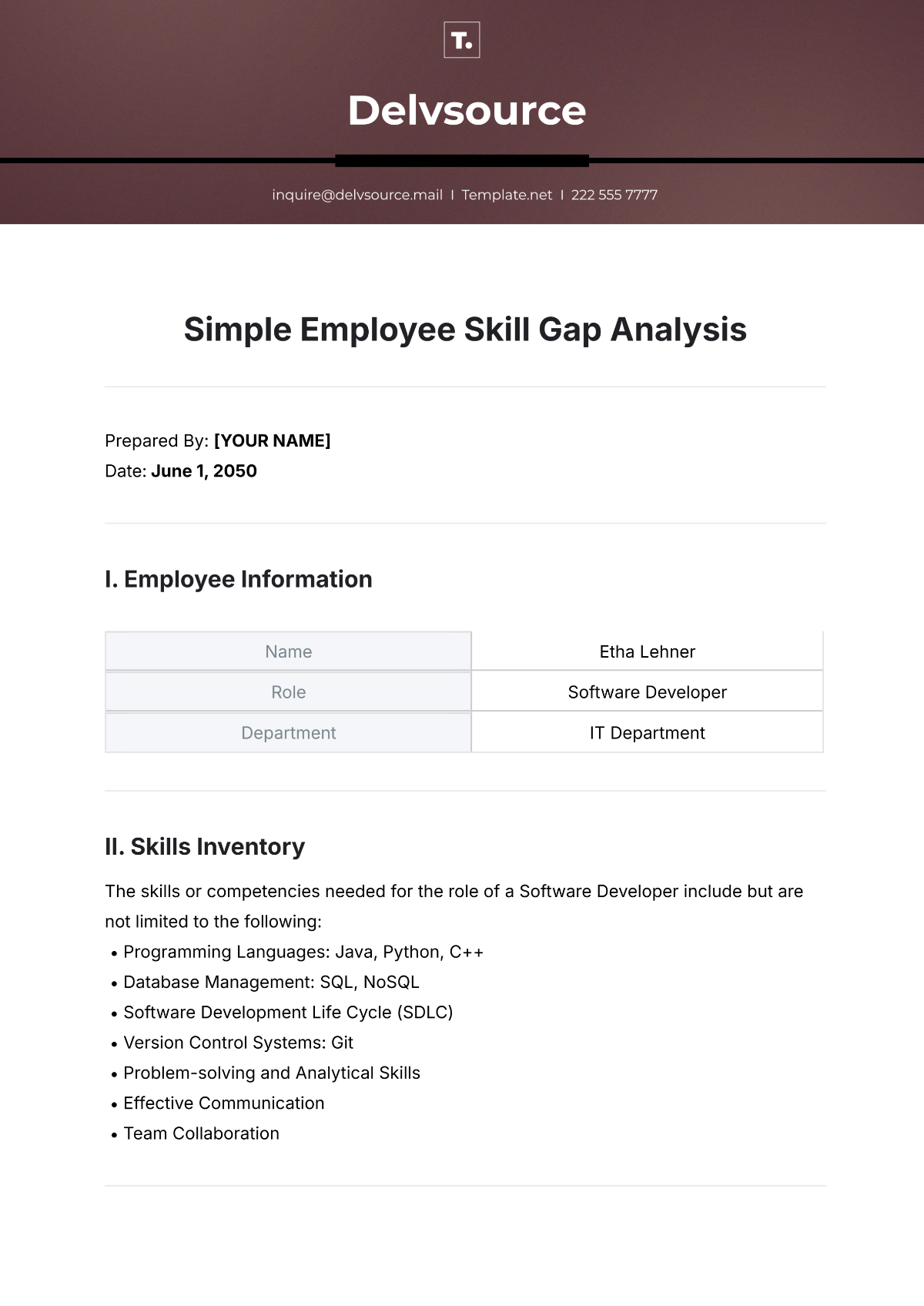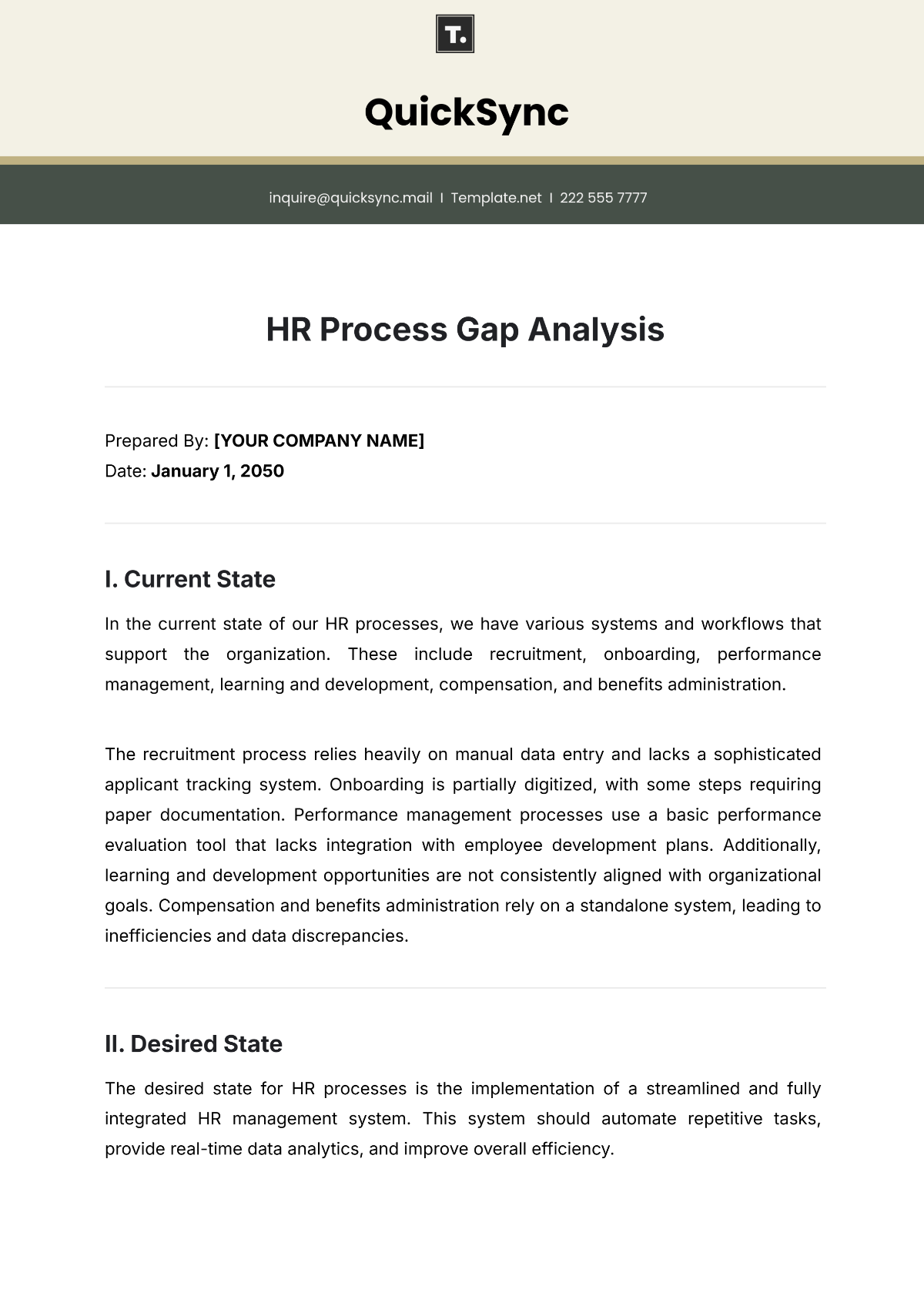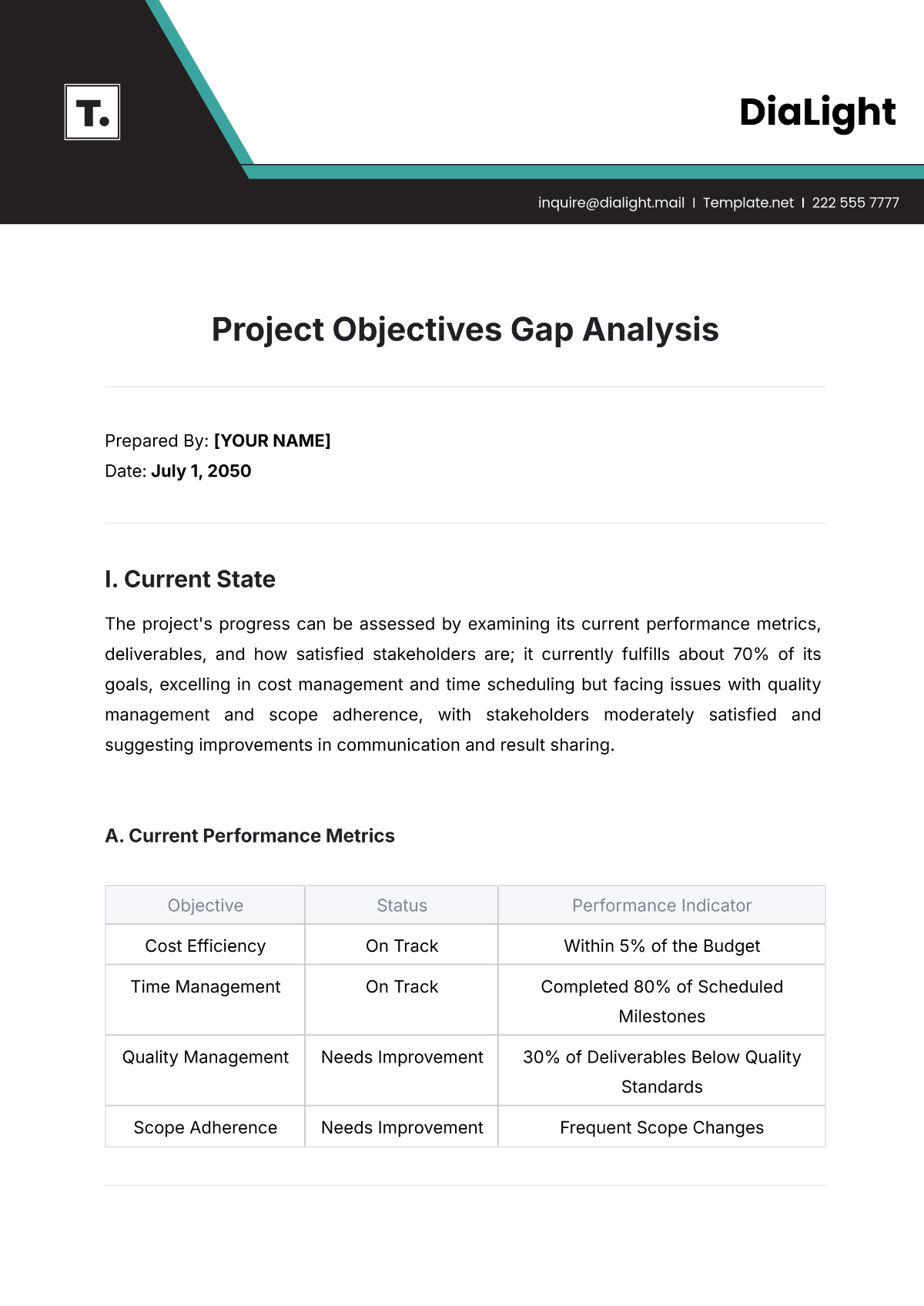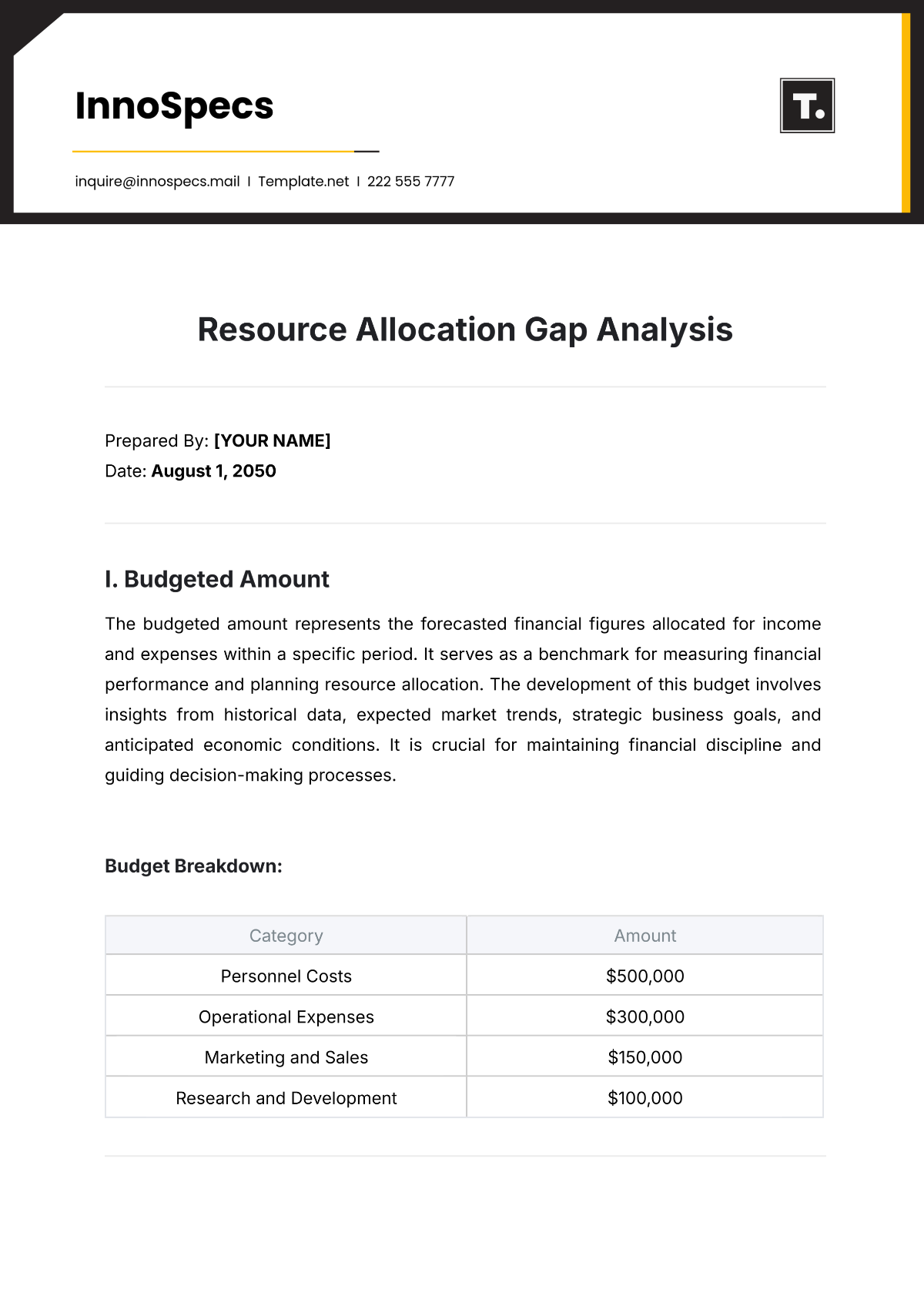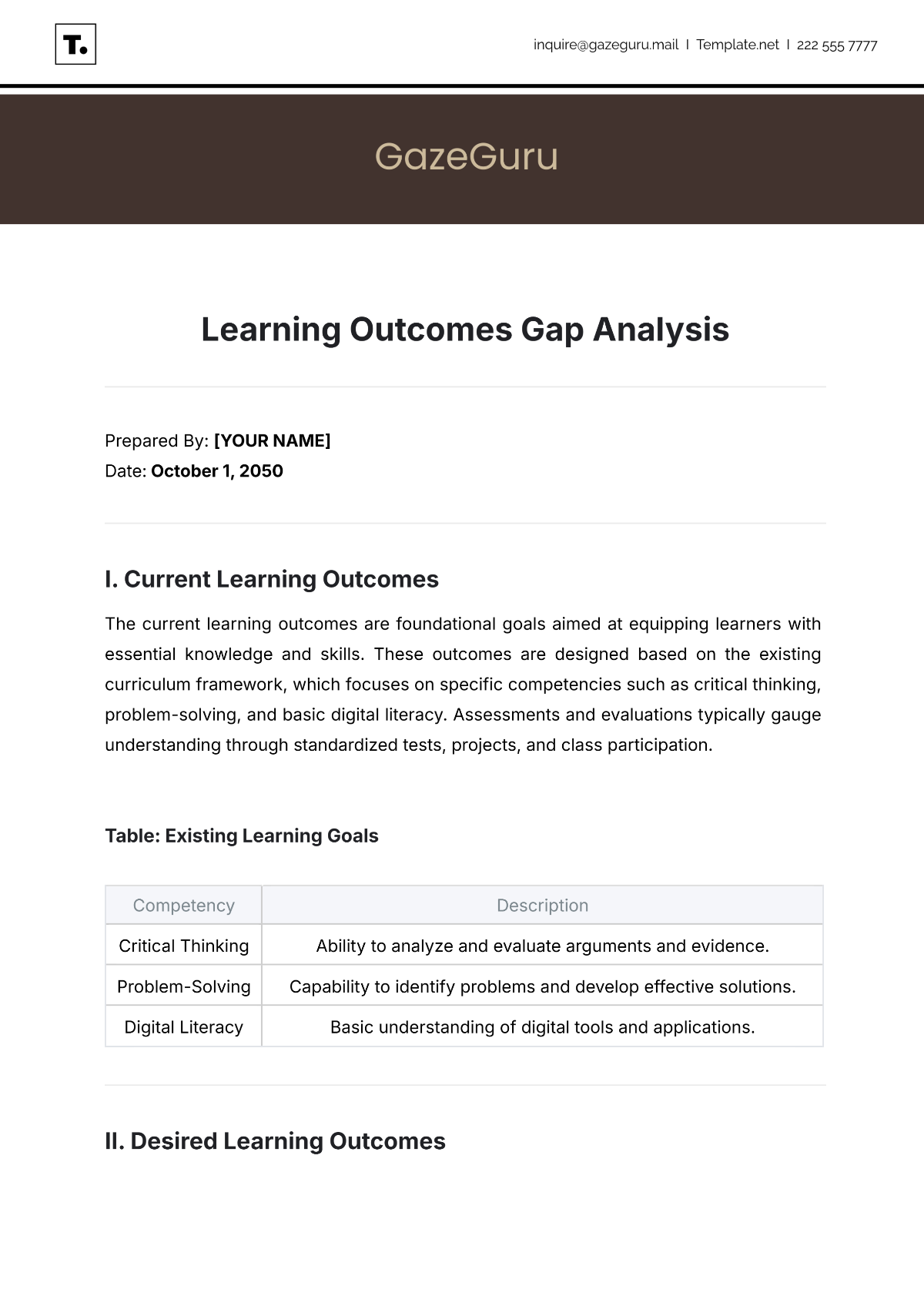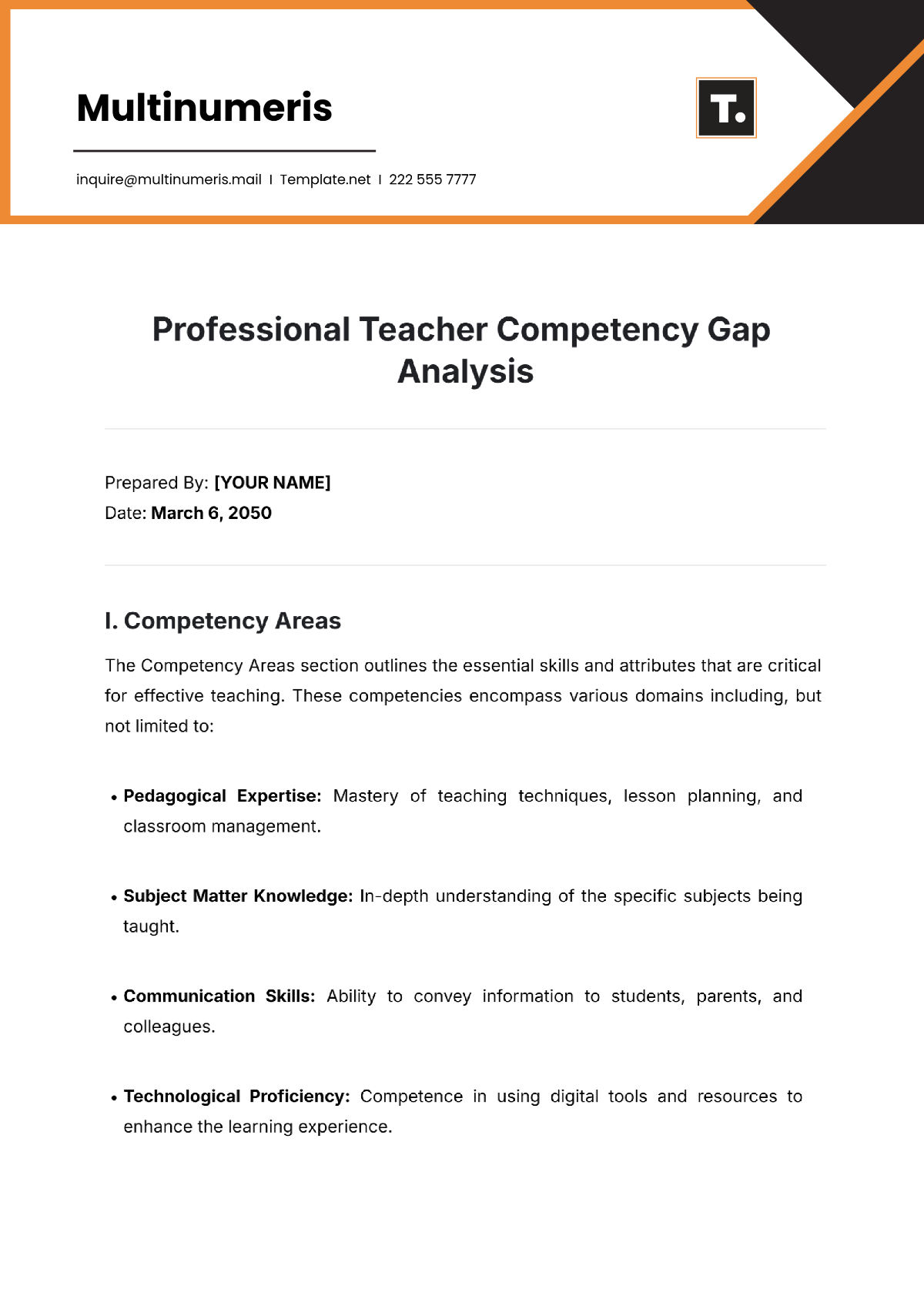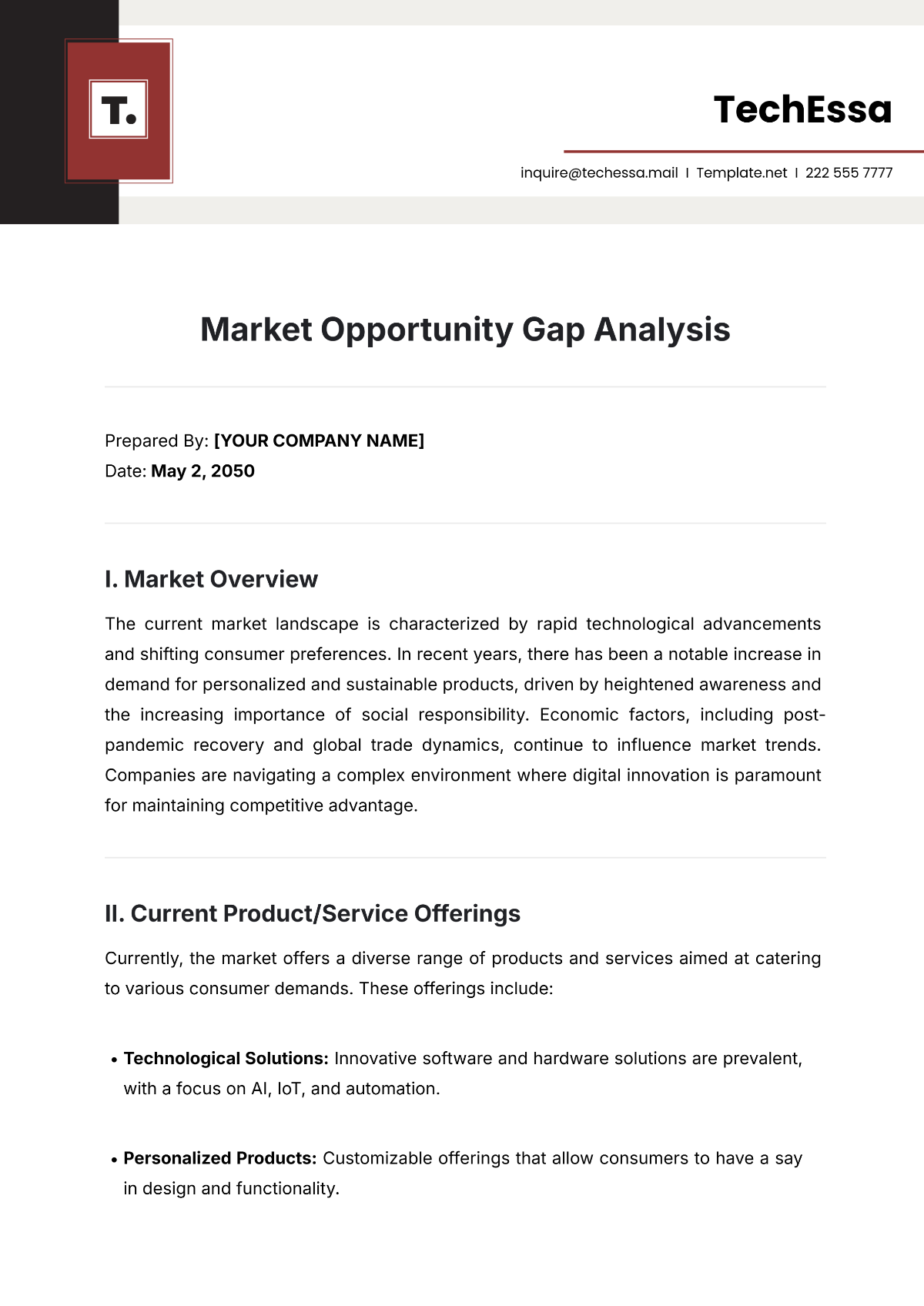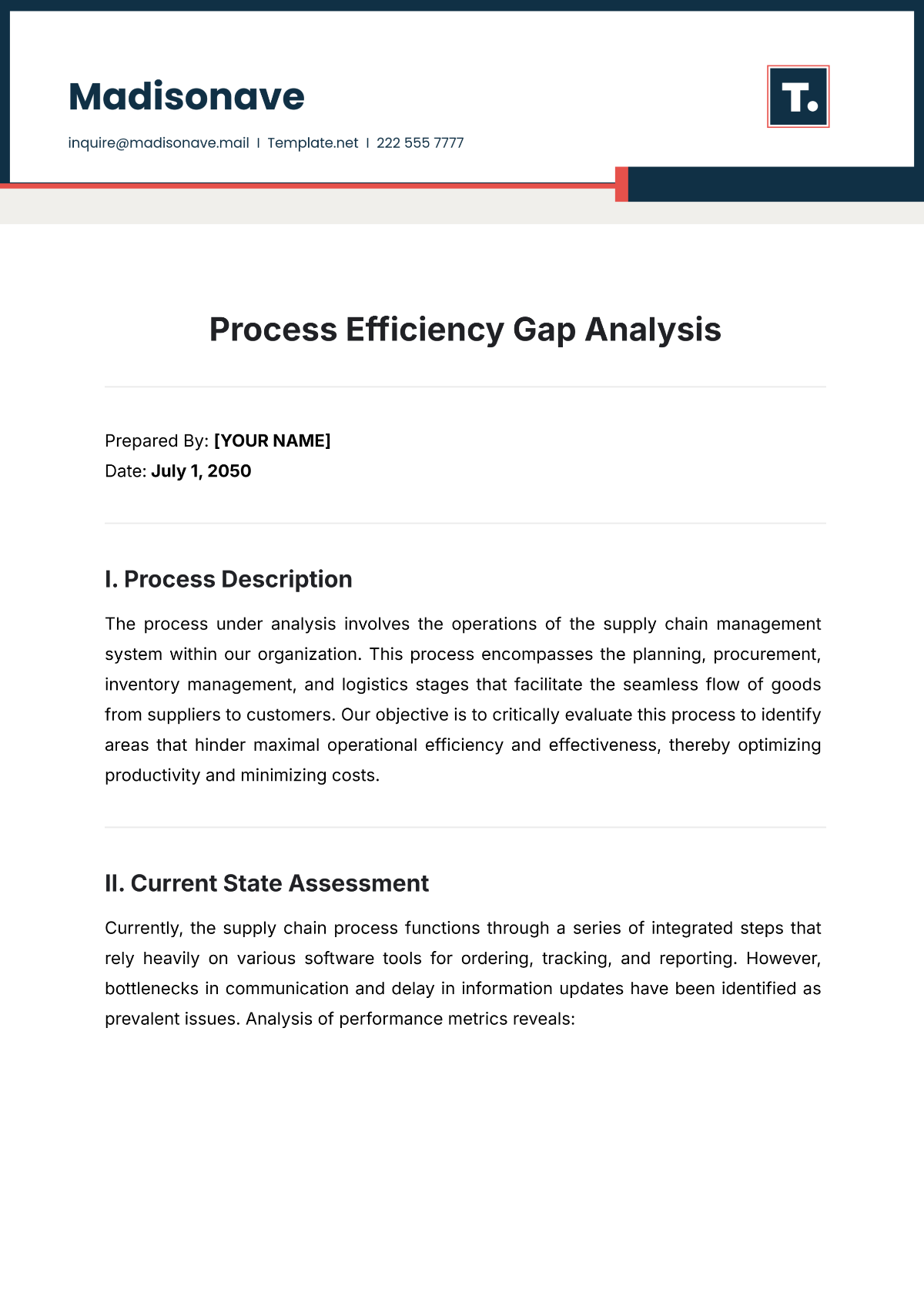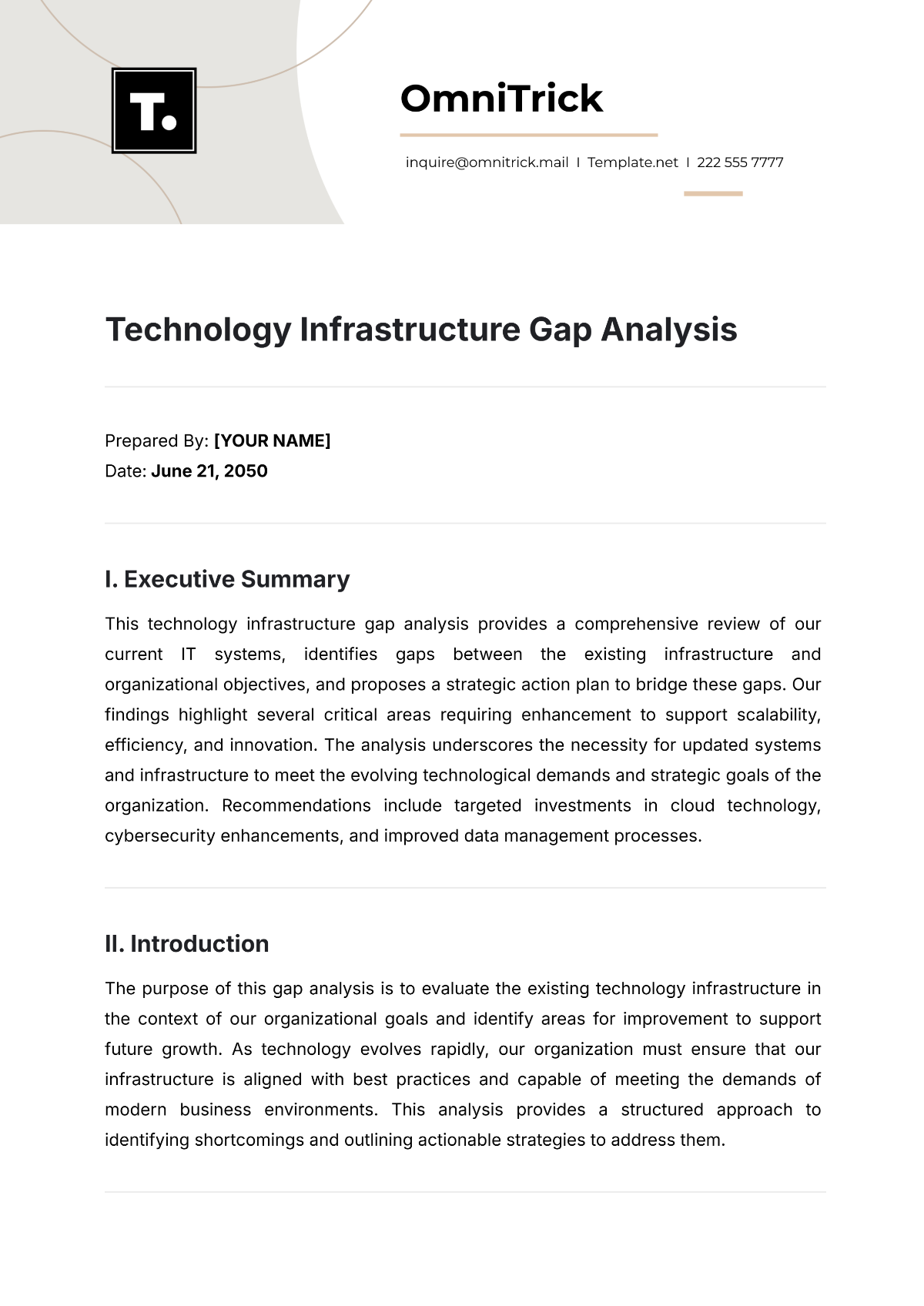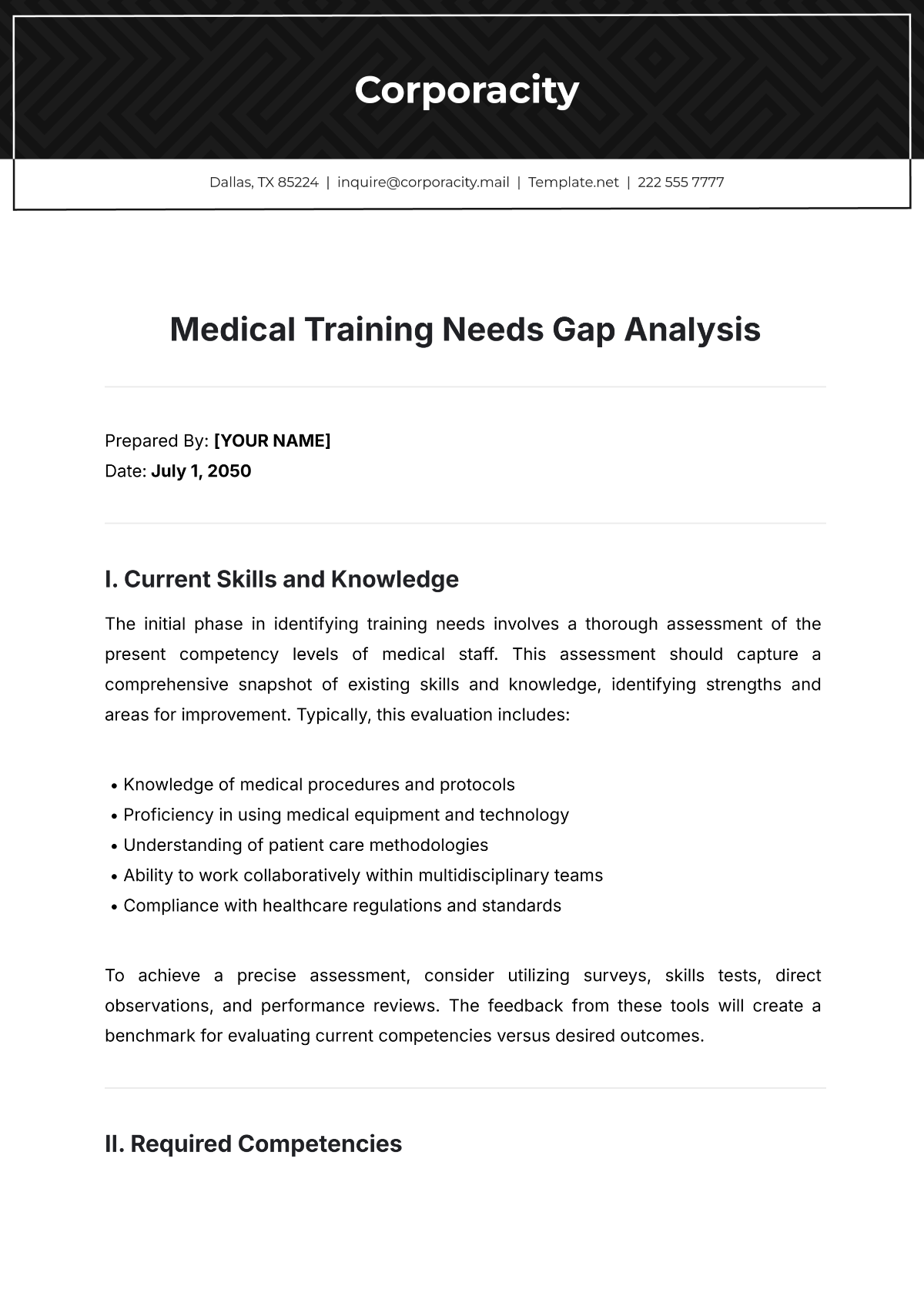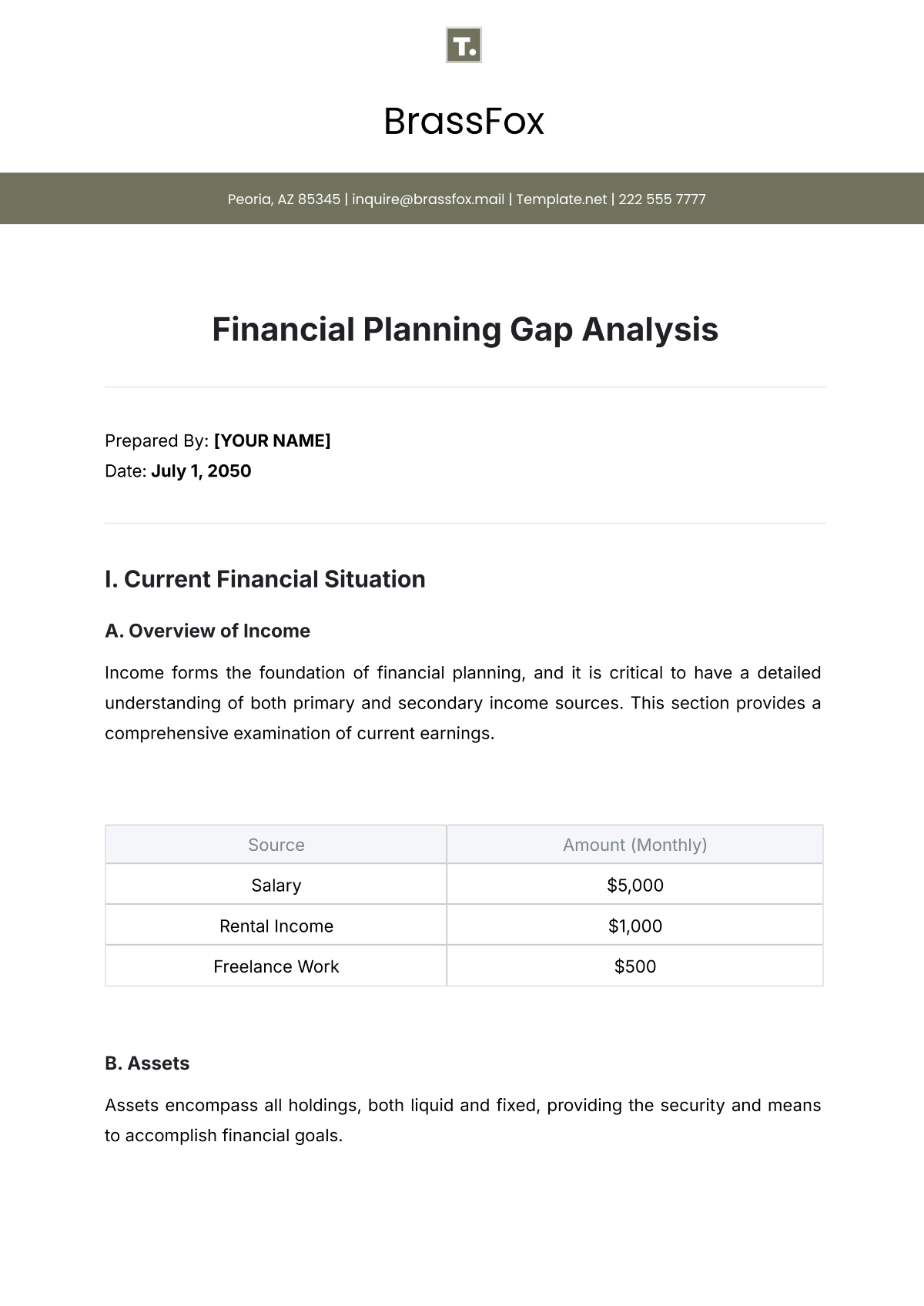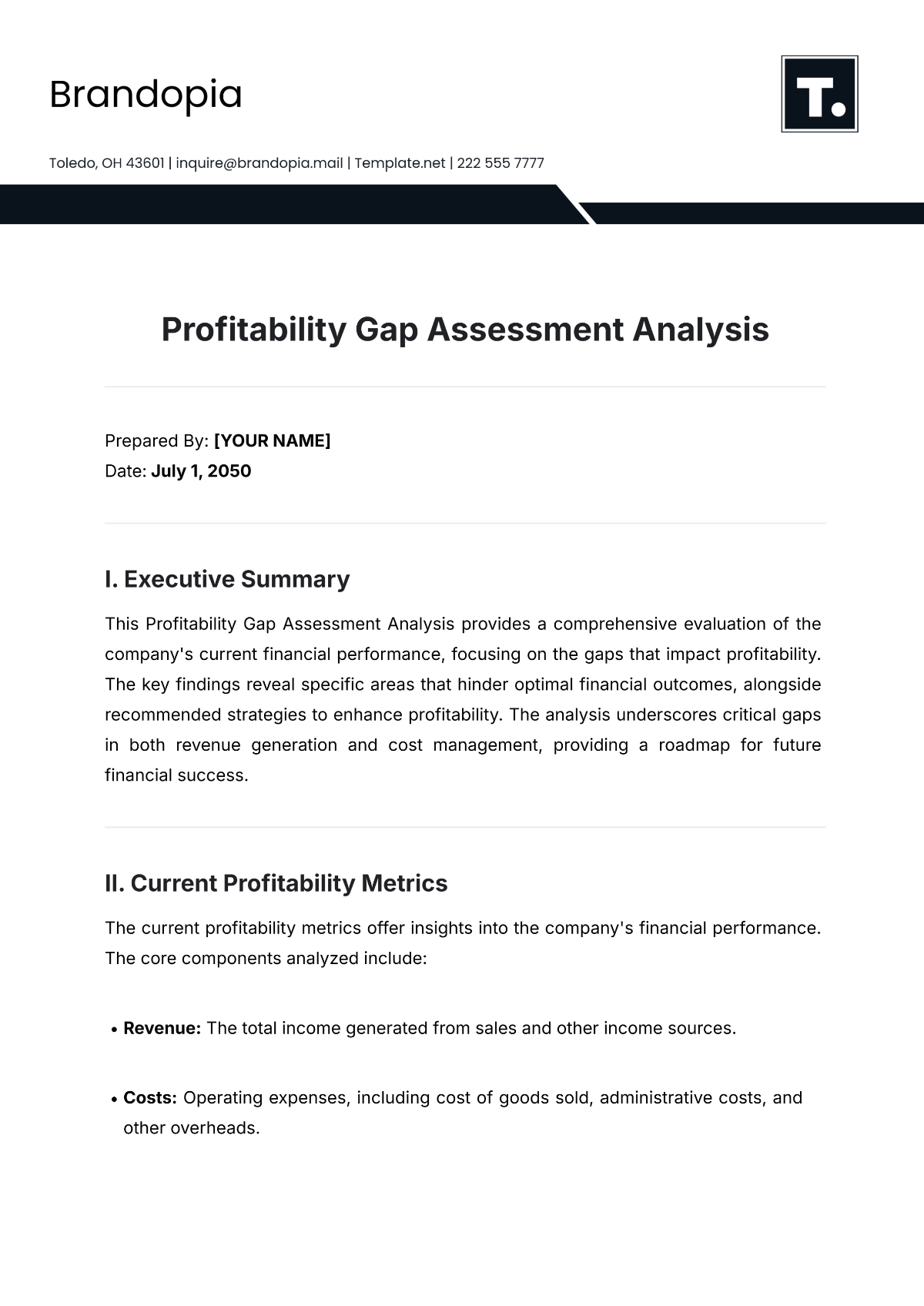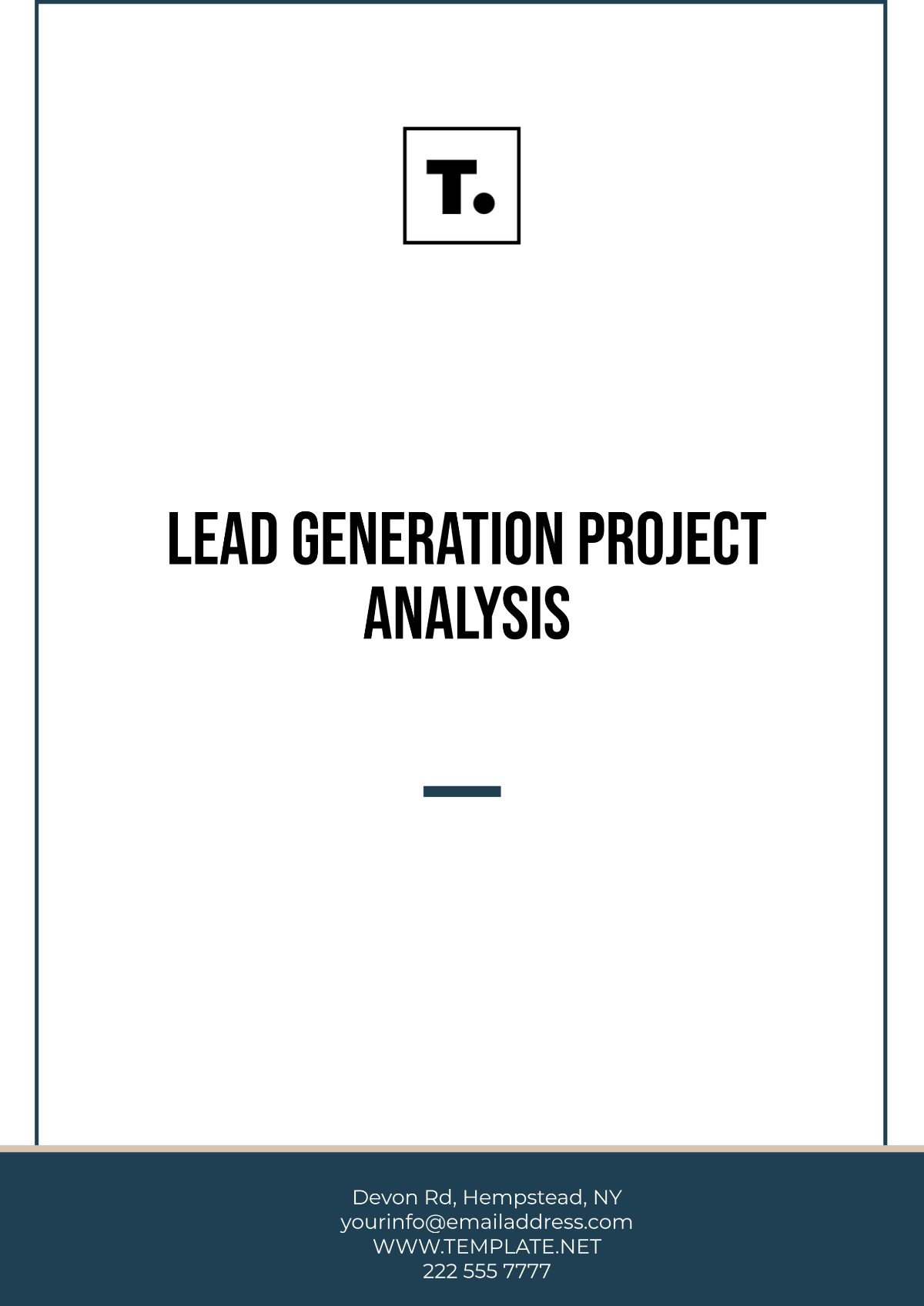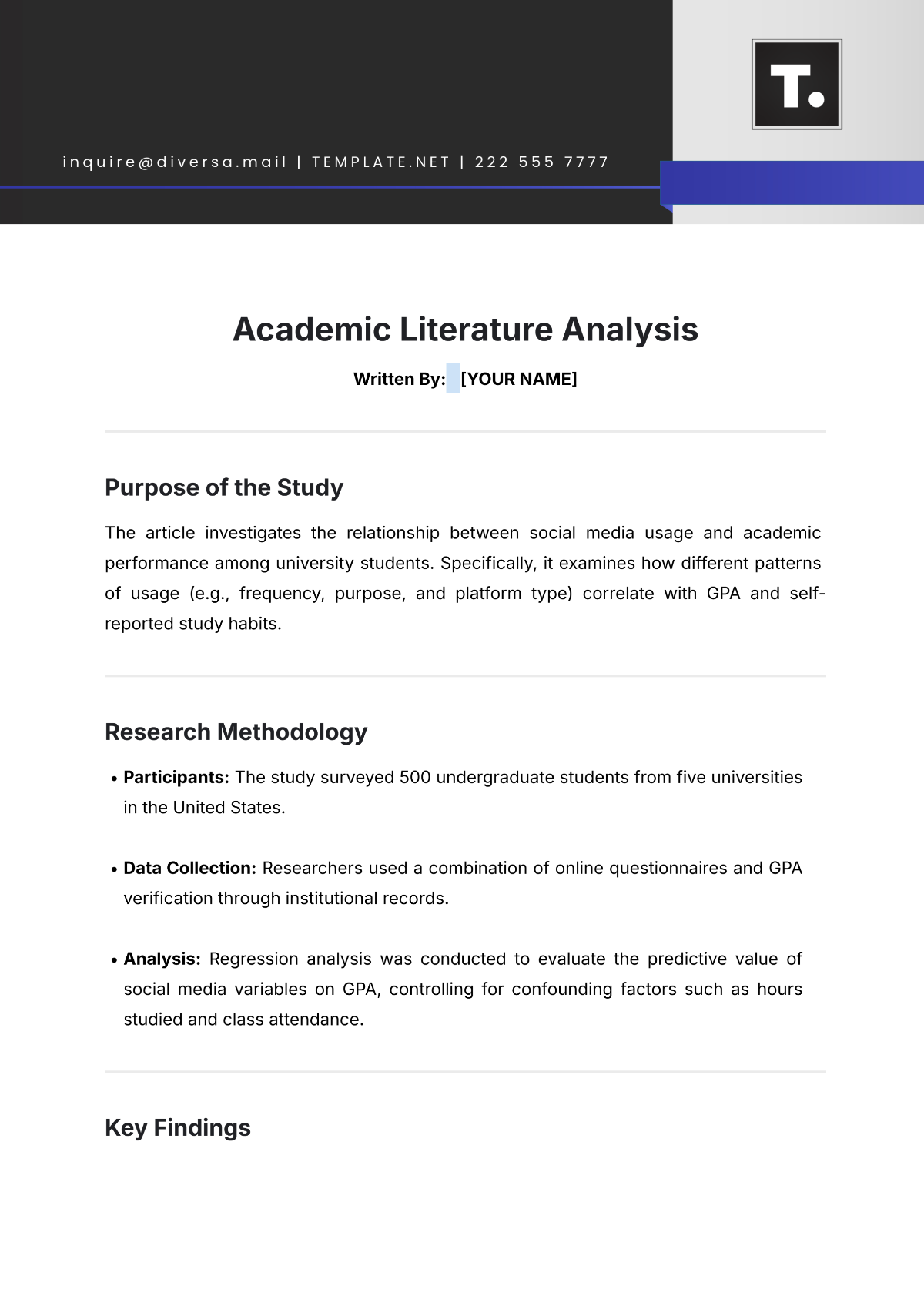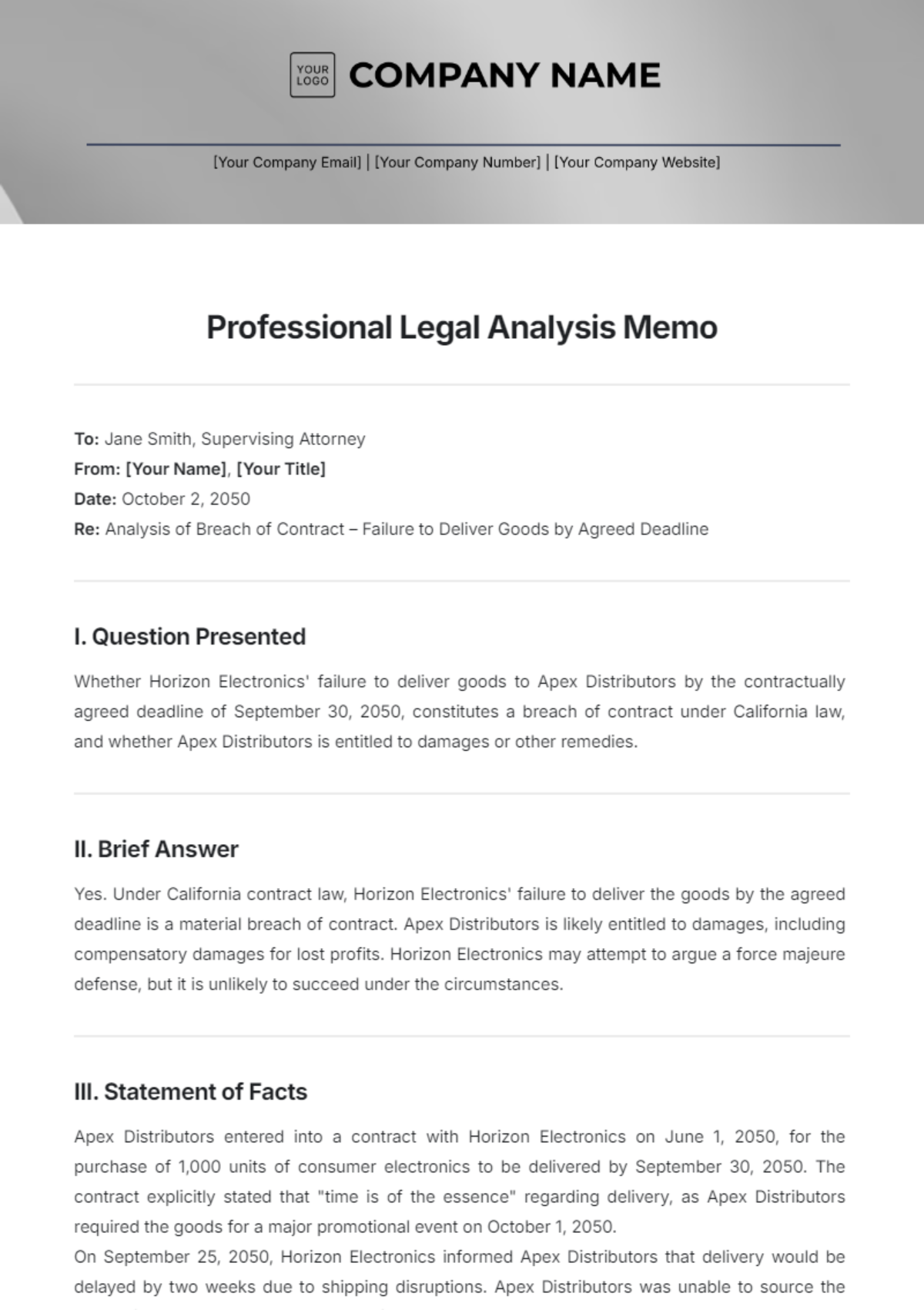Business Needs Analysis
Prepared By : | [Your Name] |
Department : | [Your Department] |
Company Name : | [Your Company Name] |
Company Address: | [Your Company Address] |
Company Social Media: | [Your Company Social Media] |
I. Executive Summary
The Business Needs Analysis conducted for [Your Company Name] aimed to assess the current state of the organization and identify key areas for improvement to drive future growth and success. Through a thorough examination of various business processes, stakeholder feedback, and market analysis, several critical findings have been uncovered.
II. Introduction
2.1 Background
The [Your Company Name] is a leading technology solutions provider in the [Your Industry] industry. With a focus on innovation and customer satisfaction, the company has established itself as a trusted partner for businesses seeking to leverage technology for growth.
2.2 Objectives
The objective of this Business Needs Analysis is to identify and address key business requirements to enhance operational efficiency, improve customer experience, and drive revenue growth for the [Your Company Name].
III. Current State Analysis
3.1 Business Processes
The current business processes at [Your Company Name] involve various departments, including sales, marketing, product development, and customer service. These processes are documented and analyzed to identify areas for improvement.
3.2 Stakeholder Analysis
Key stakeholders involved in or impacted by this analysis include senior management, department heads, frontline staff, and external partners such as vendors and clients. Their roles, interests, and levels of influence are considered in the analysis.
3.3 SWOT Analysis
A SWOT analysis is conducted to assess the organization's strengths, weaknesses, opportunities, and threats in the context of the current business environment. This analysis helps in identifying internal capabilities and external factors affecting business performance.
IV. Gap Analysis
4.1 Identified Gaps
Through comprehensive analysis, several gaps have been identified in areas such as process efficiency, technology utilization, and customer engagement. These gaps are detailed and prioritized based on their impact on organizational objectives.
4.2 Root Cause Analysis
Root cause analysis reveals underlying issues contributing to identified gaps, including outdated systems, lack of training, and inconsistent communication channels. Understanding the root causes is essential for developing effective solutions.
V. Recommendations
5.1 Solutions
To address identified gaps, the following solutions are proposed:
(a) CRM System Features and Benefits: detailing the features and benefits of the proposed CRM system.
Feature | Benefit |
|---|---|
Customer Segmentation | Targeted marketing and personalized customer experiences |
Sales Automation | Improved sales efficiency and productivity |
Reporting & Analytics | Data-driven decision-making and performance tracking |
Integration Options | Seamless integration with existing systems for enhanced efficiency |
(b) Employee Training Programs: outlining the topics, duration, and expected outcomes of the training programs.
Topic | Duration | Expected Outcomes |
|---|---|---|
Customer Service | 2 days | Improved customer satisfaction and retention |
Product Knowledge | 1 week | Enhanced sales effectiveness and product understanding |
Communication Skills | 3 days | Better internal collaboration and customer interactions |
(c) Digital Marketing Strategy: A checklist outlining the steps involved in developing and implementing the digital marketing strategy.
Step | Details |
|---|---|
| Set specific objectives and measurable goals for the digital marketing strategy. |
| Conduct market research to understand demographics, preferences, and behavior. |
| Evaluate and select relevant digital marketing channels based on target audience and goals. |
| Plan content types, formats, and distribution schedules for each chosen channel. |
| Ensure website and landing pages are optimized for search engines and user experience. |
| Set up and optimize social media profiles, and create a content calendar for posting. |
| Build an email list and design targeted campaigns with personalized content and CTAs. |
5.2. Implementation Plan
An implementation plan is outlined, detailing timelines, milestones, and responsible parties for each proposed solution. This plan ensures a structured approach to implementation and monitoring progress.
5.3. Budget Considerations
Estimated budget requirements for implementing proposed solutions are provided, including costs for software acquisition, training, and marketing campaigns. Below is a detailed breakdown of the budget:
Item | Cost |
|---|---|
CRM Software License | $10,000 |
Employee Training Programs | $15,000 |
Digital Marketing Campaigns | $20,000 |
Total | $45,000 |
VI. Stakeholder Input
6.1 Feedback
Throughout the analysis process, feedback from stakeholders has been collected and incorporated into the recommendations to ensure alignment with organizational goals and objectives. Below is a summary of stakeholder feedback:
Stakeholder | Feedback |
|---|---|
Senior Management | Supportive of proposed solutions and timelines |
Department Heads | Concerns regarding implementation resources |
Frontline Staff | Enthusiastic about training opportunities |
External Partners | Interested in potential collaboration opportunities |
6.2 Alignment
Proposed solutions are aligned with stakeholder needs and expectations, ensuring buy-in and support for implementation efforts. Any discrepancies or concerns raised by stakeholders are addressed to ensure alignment.
VII. Conclusion
In conclusion, addressing the identified business needs is essential for the continued success and growth of [Your Company Name]. By implementing the recommended solutions, the company can strengthen its competitive position, enhance operational effectiveness, and deliver greater value to customers.

